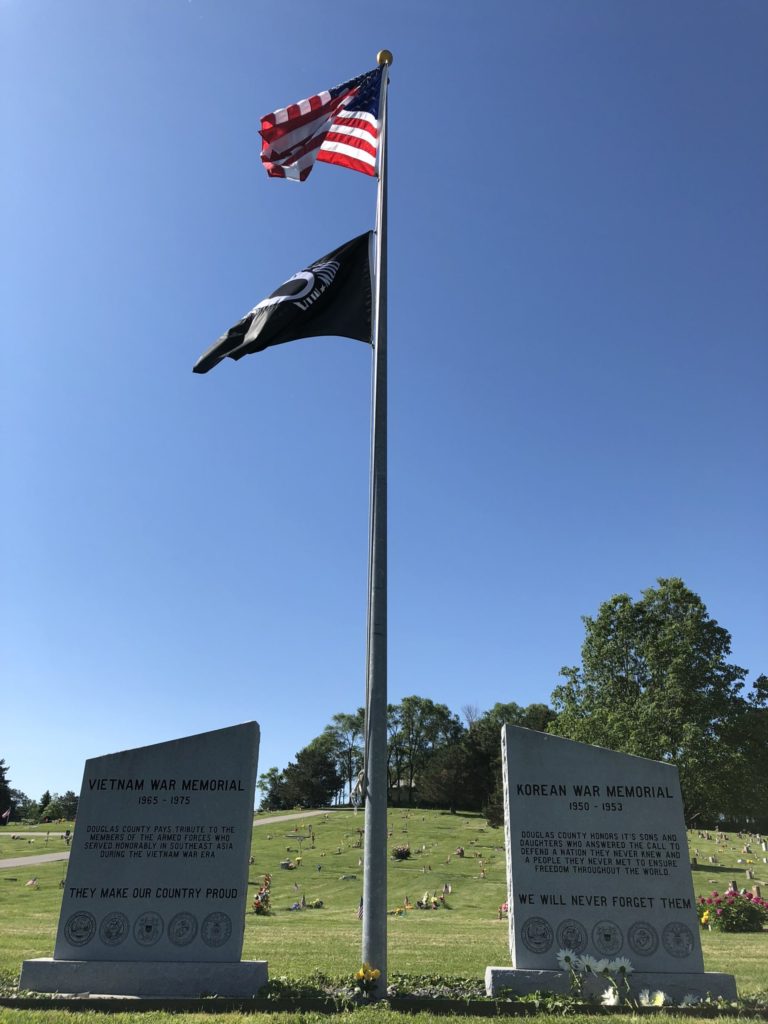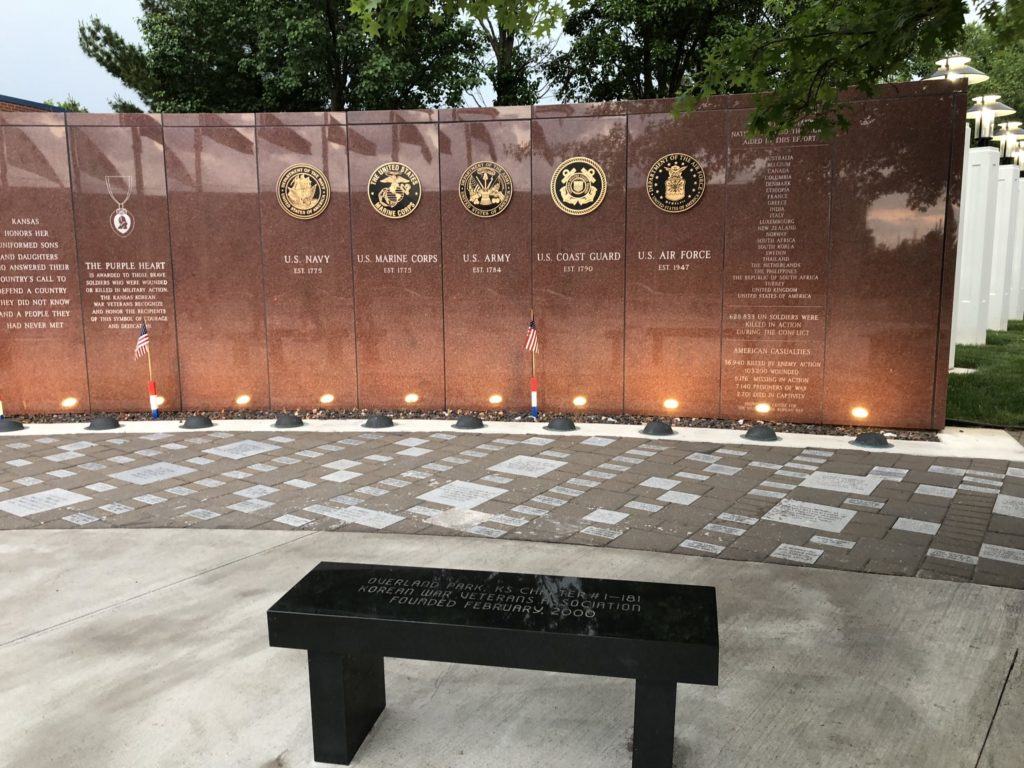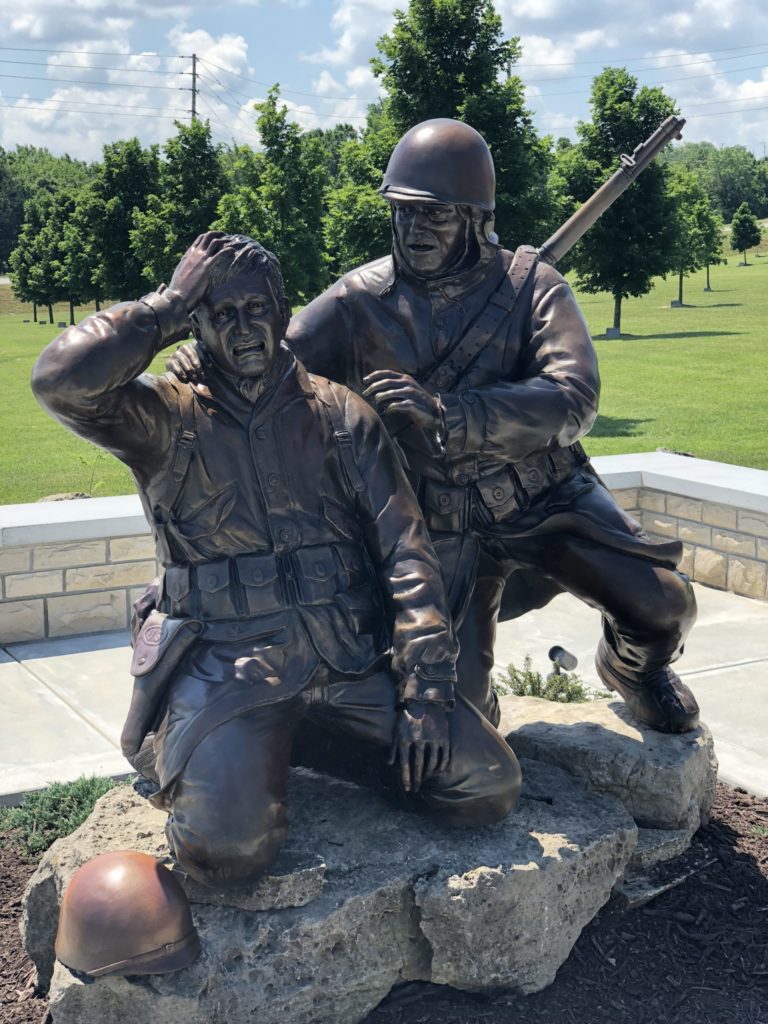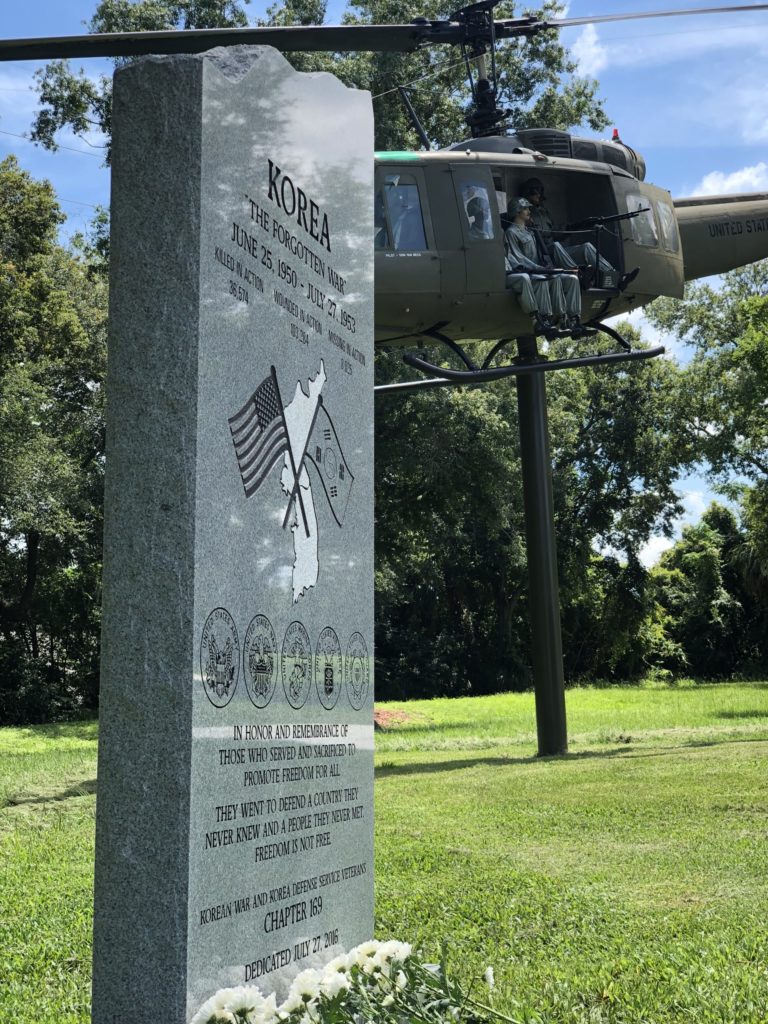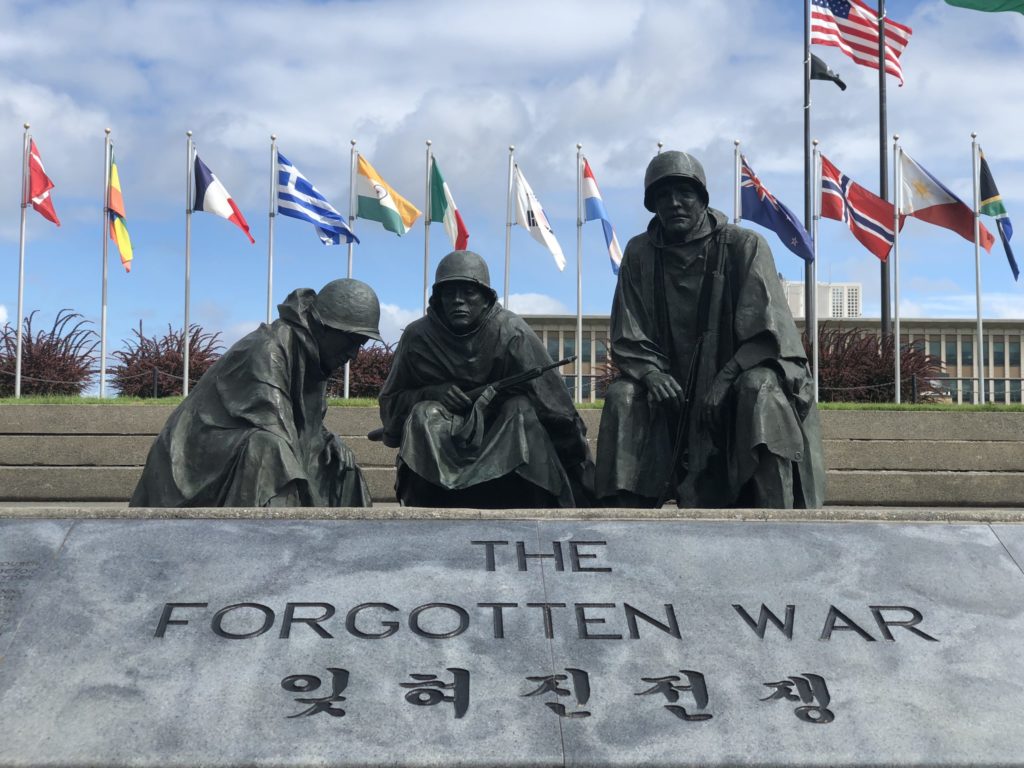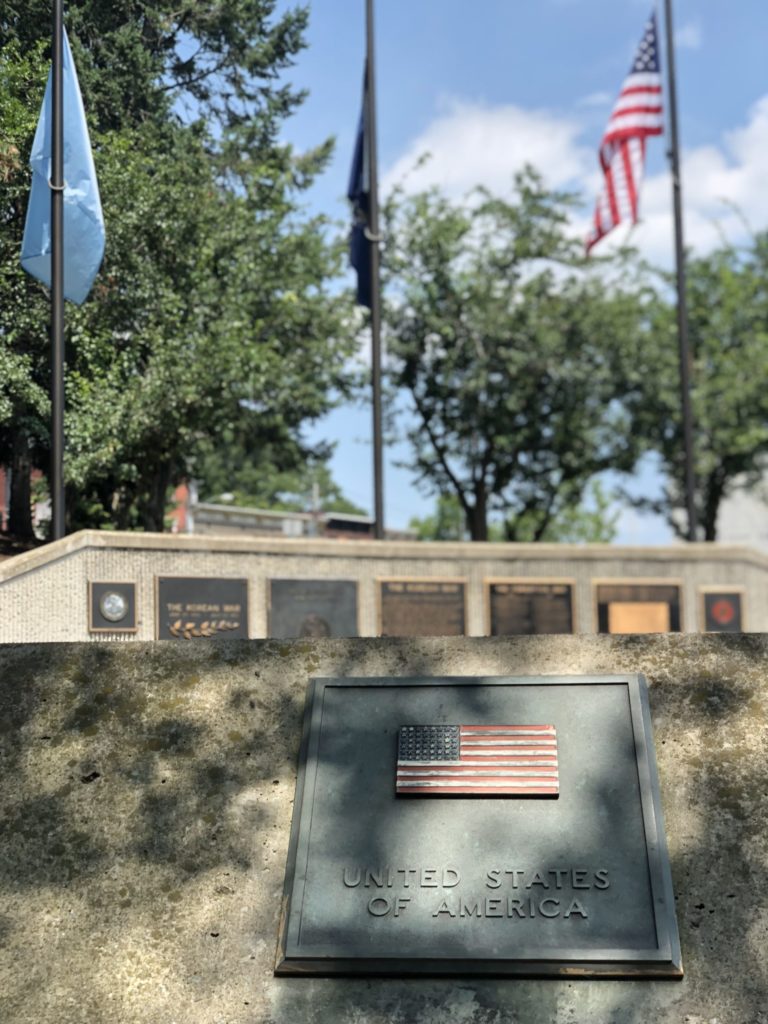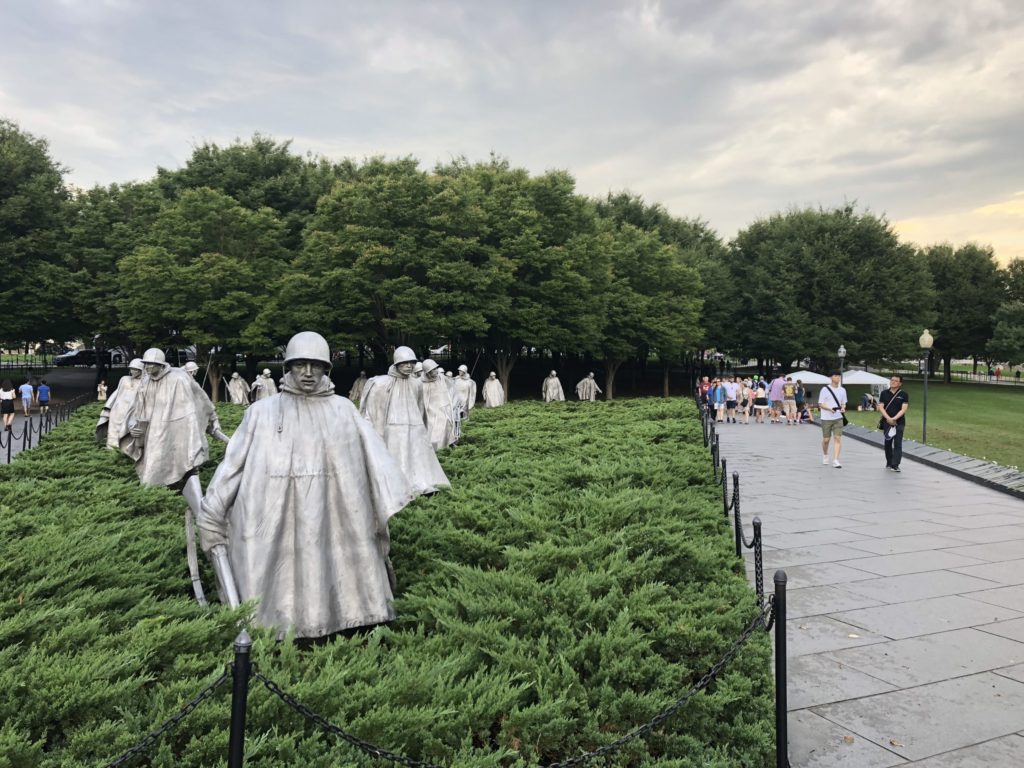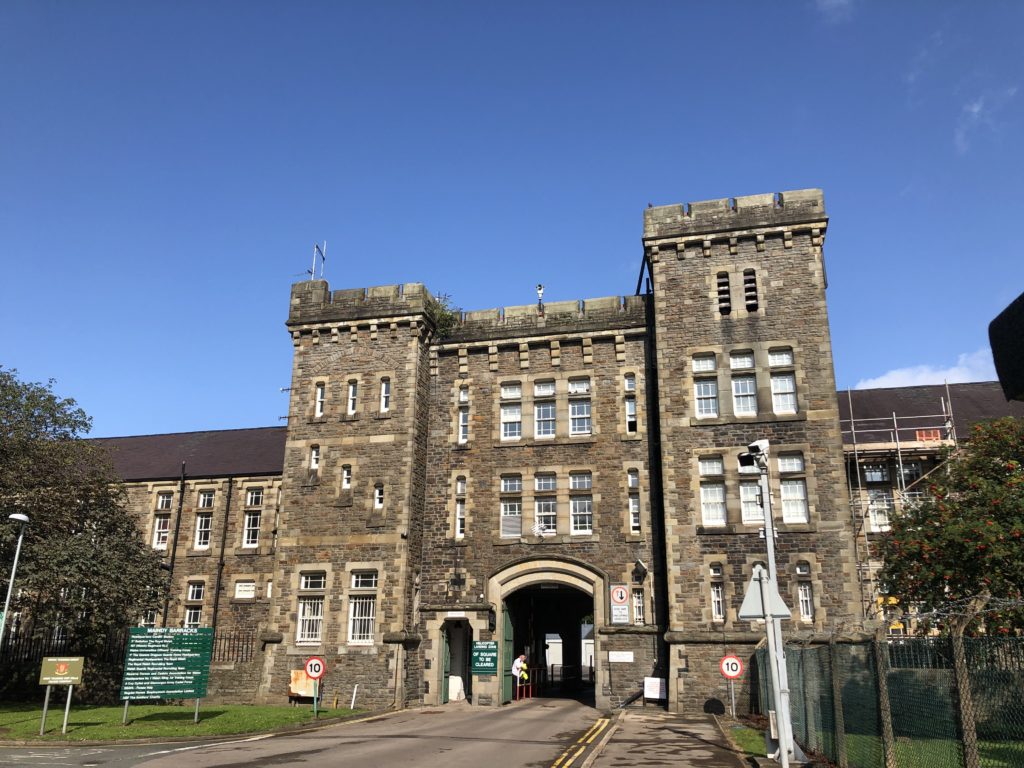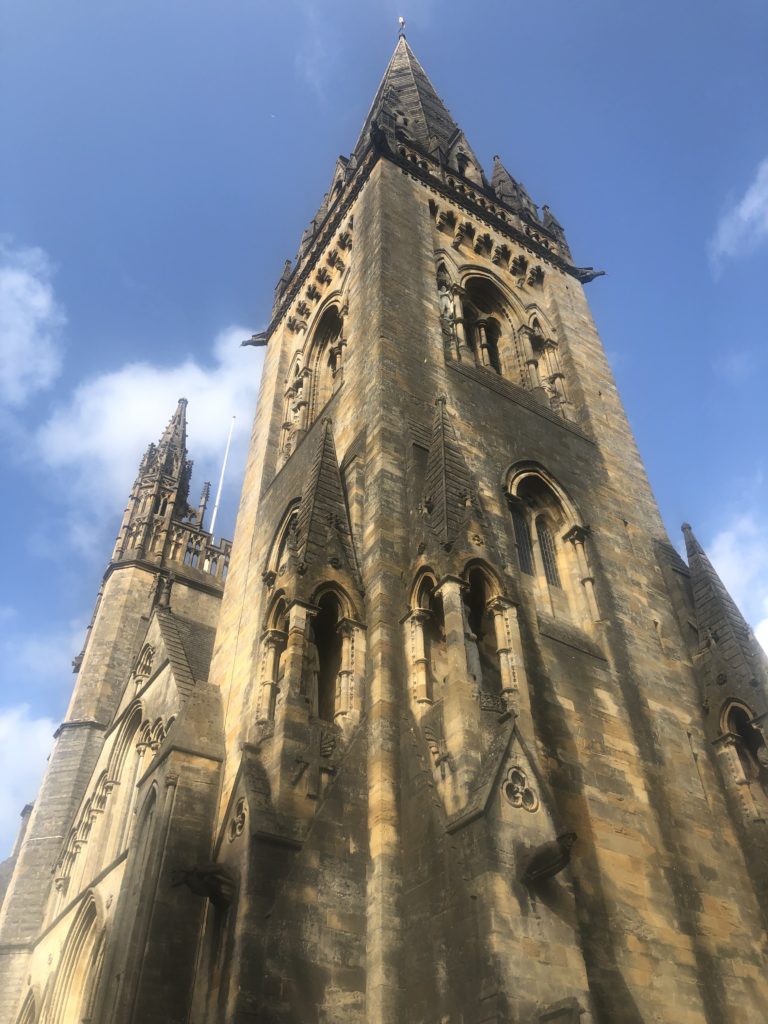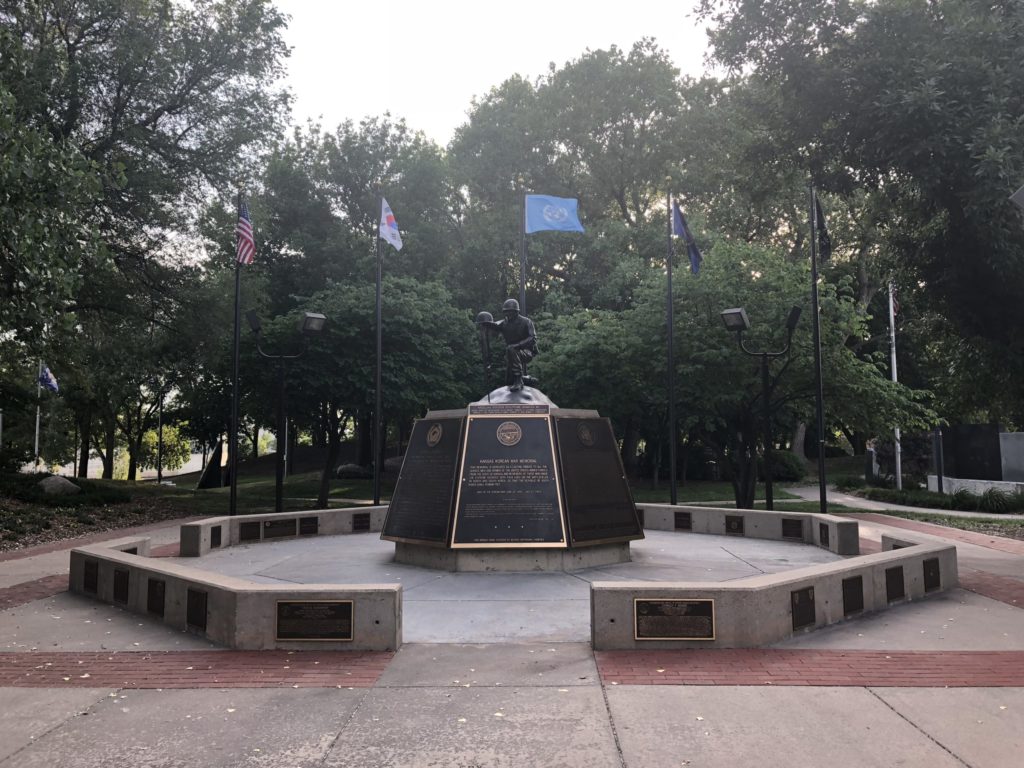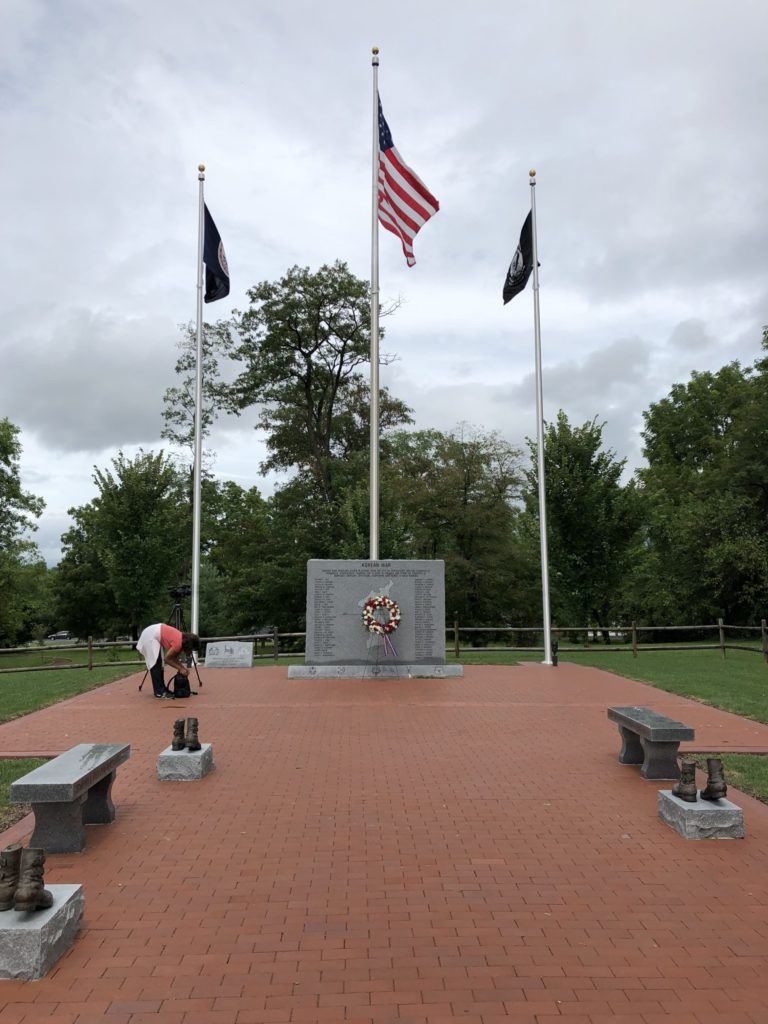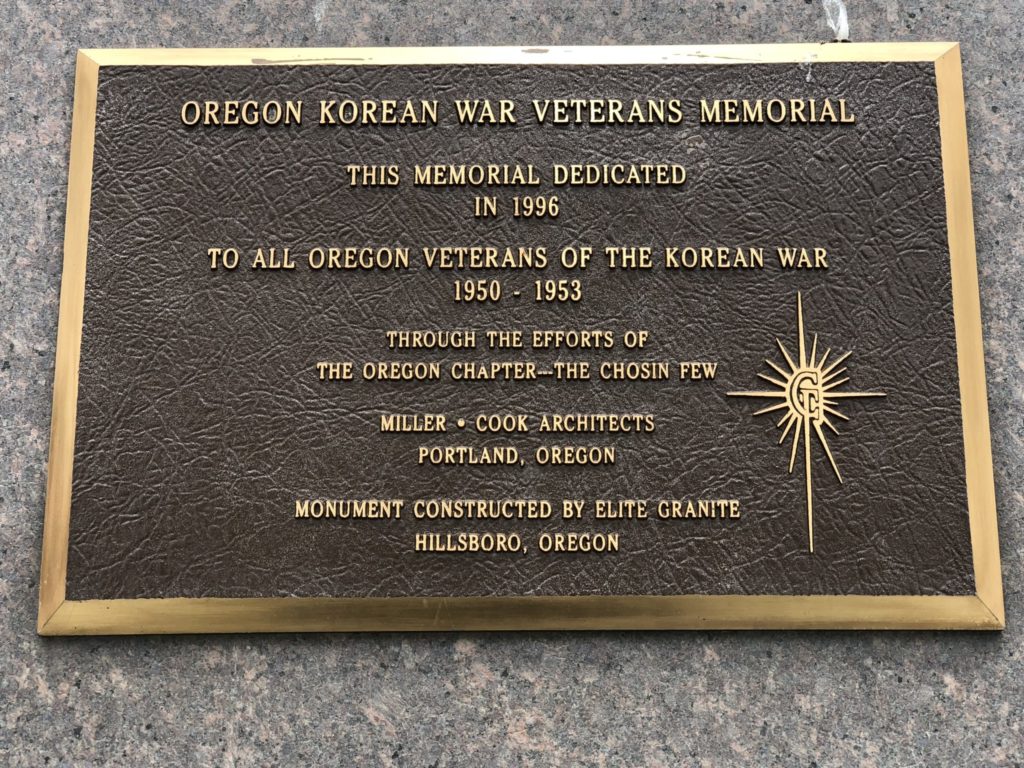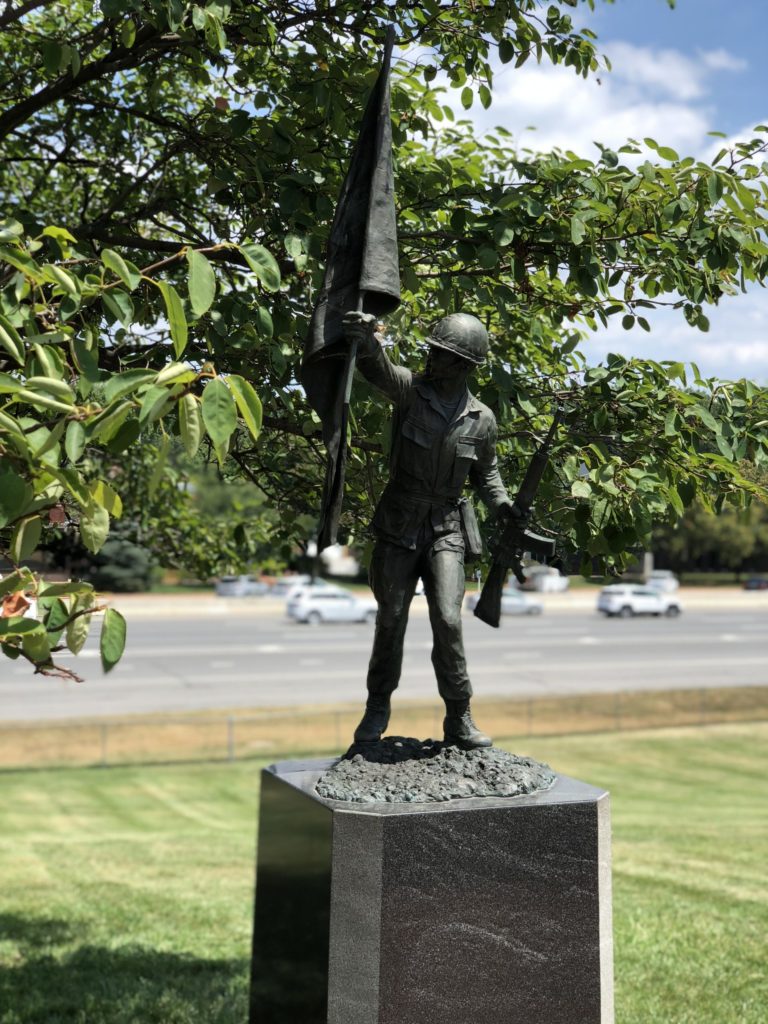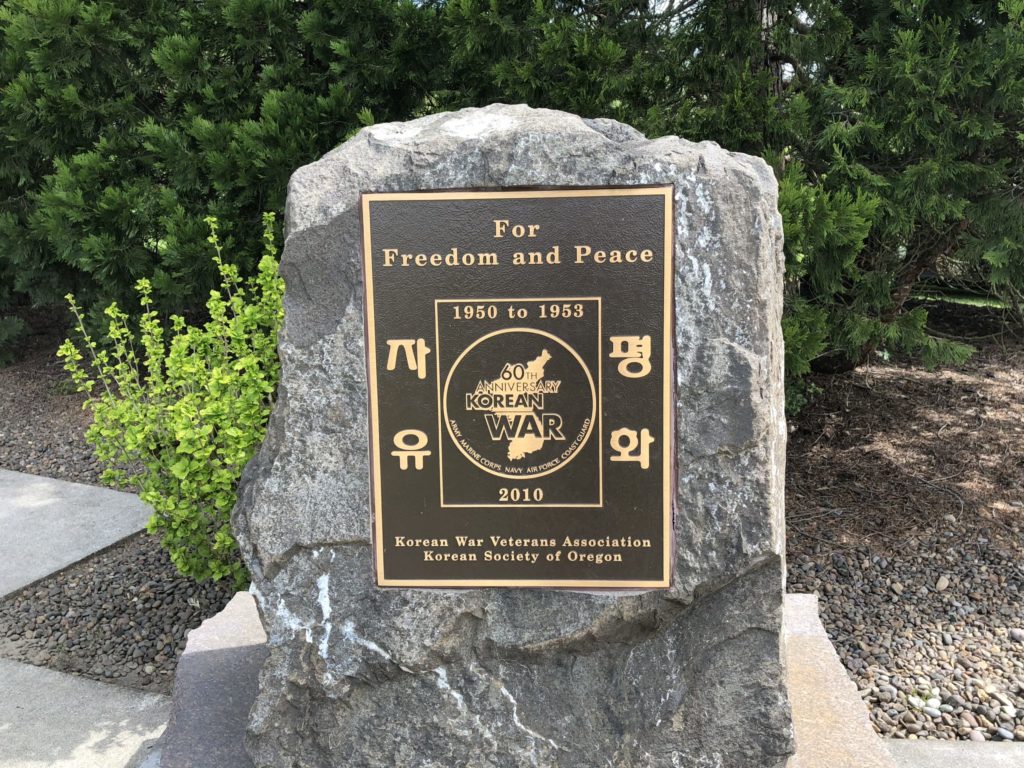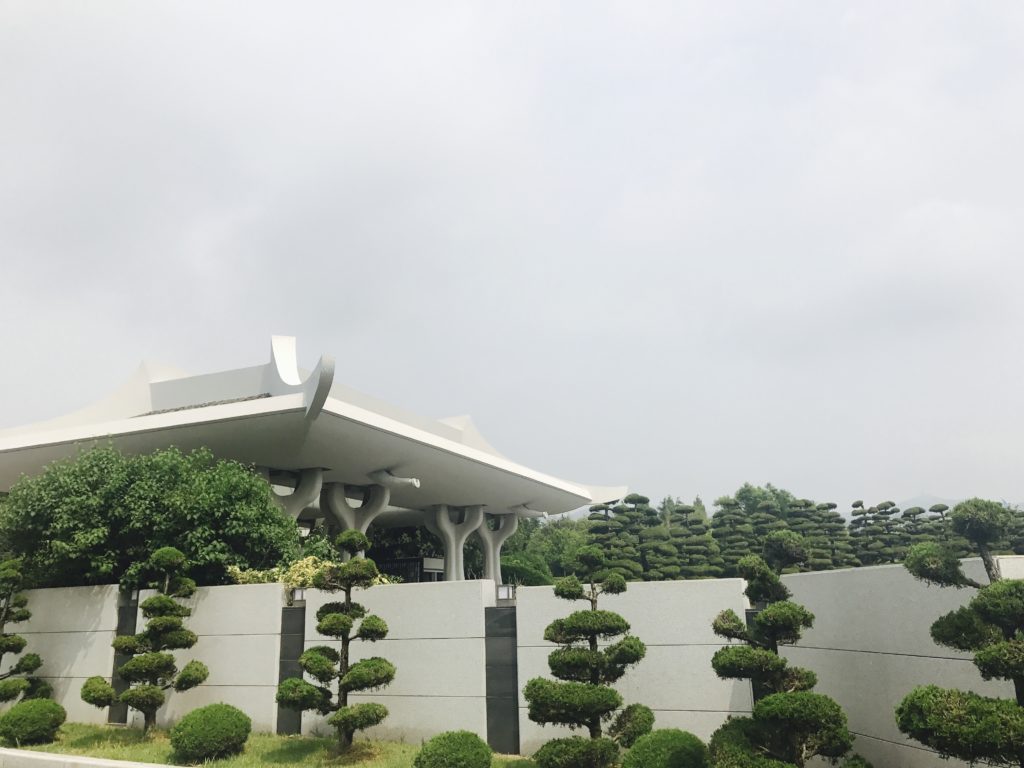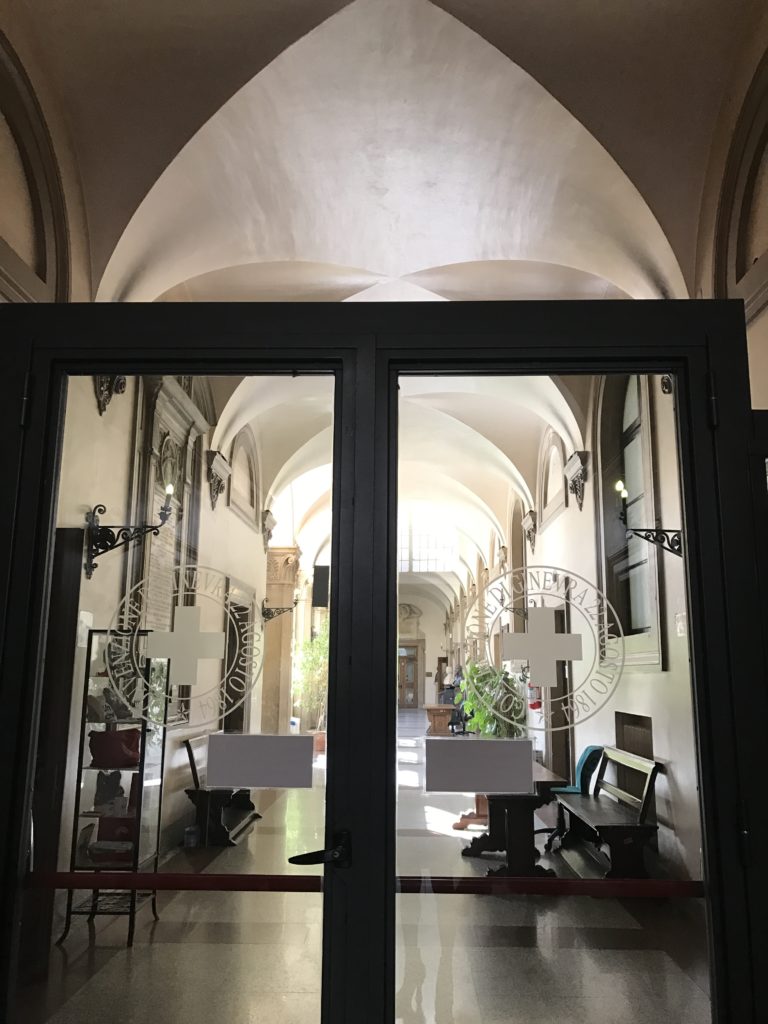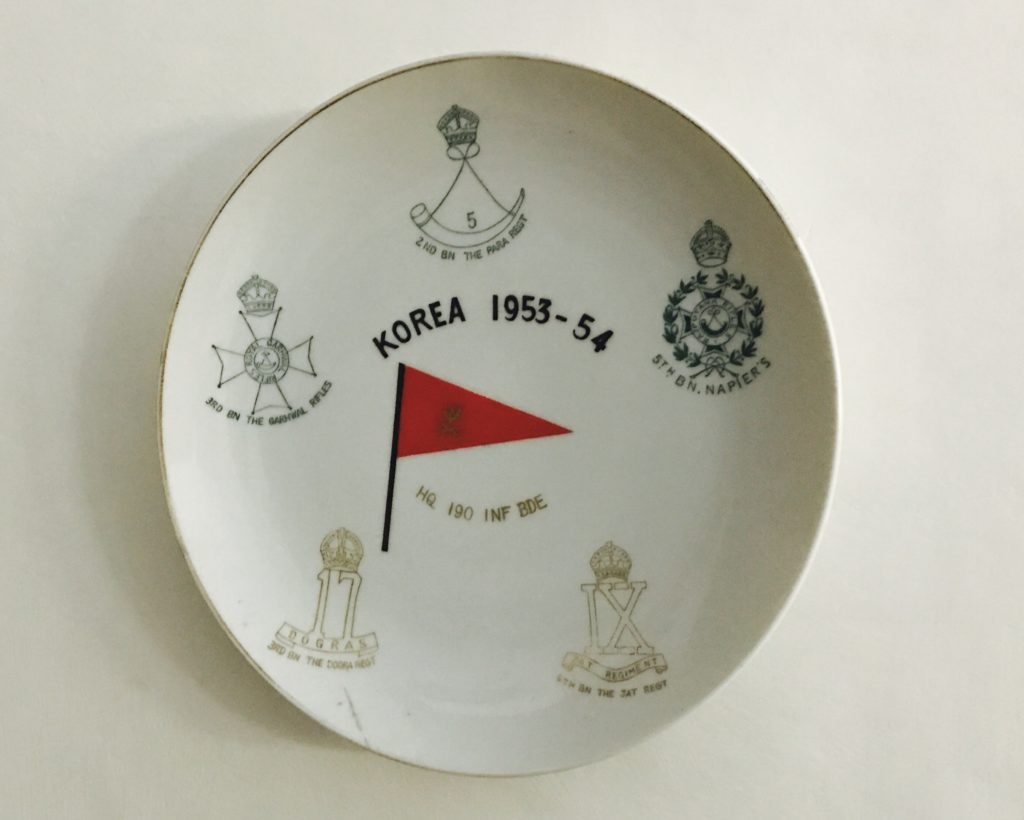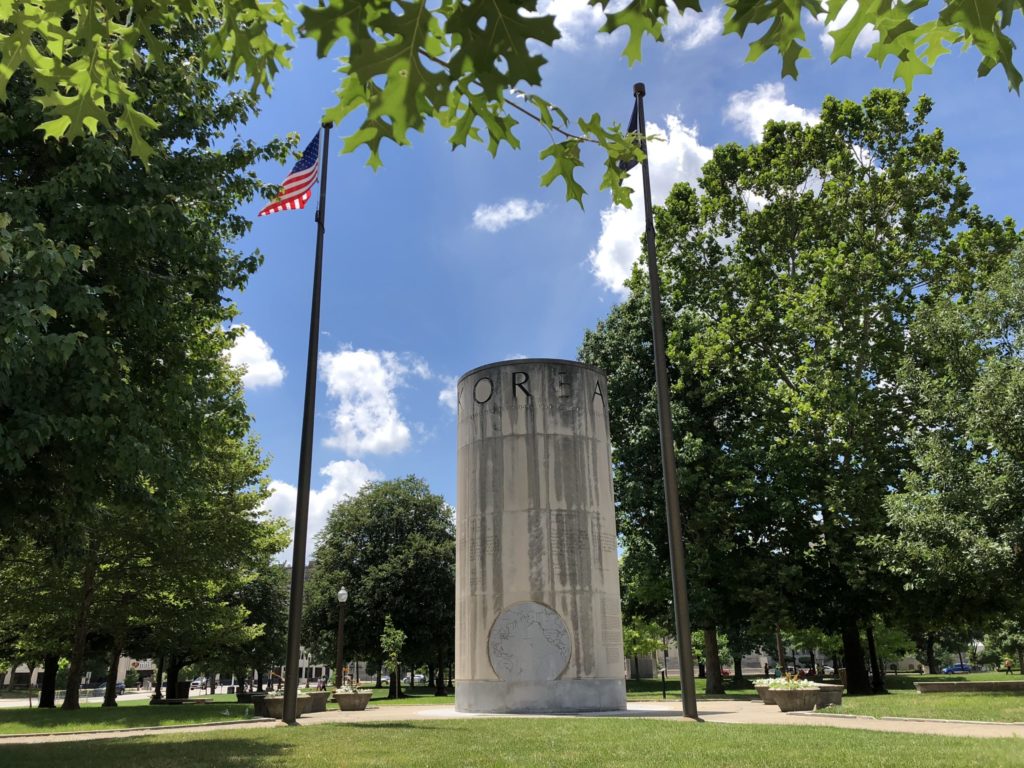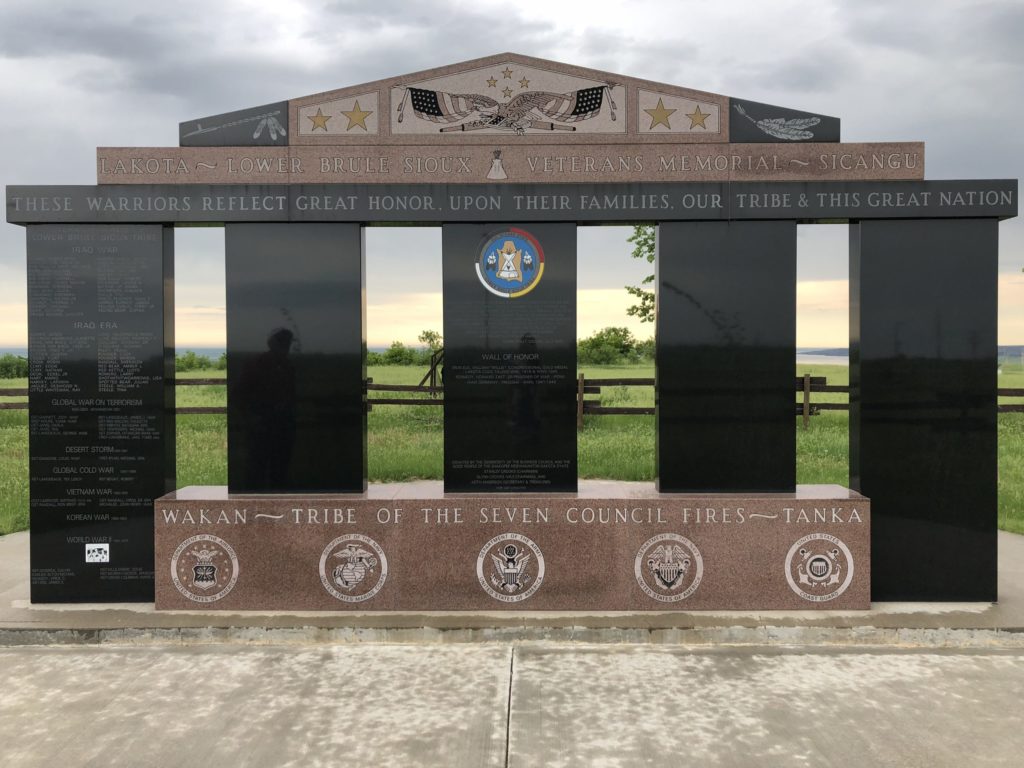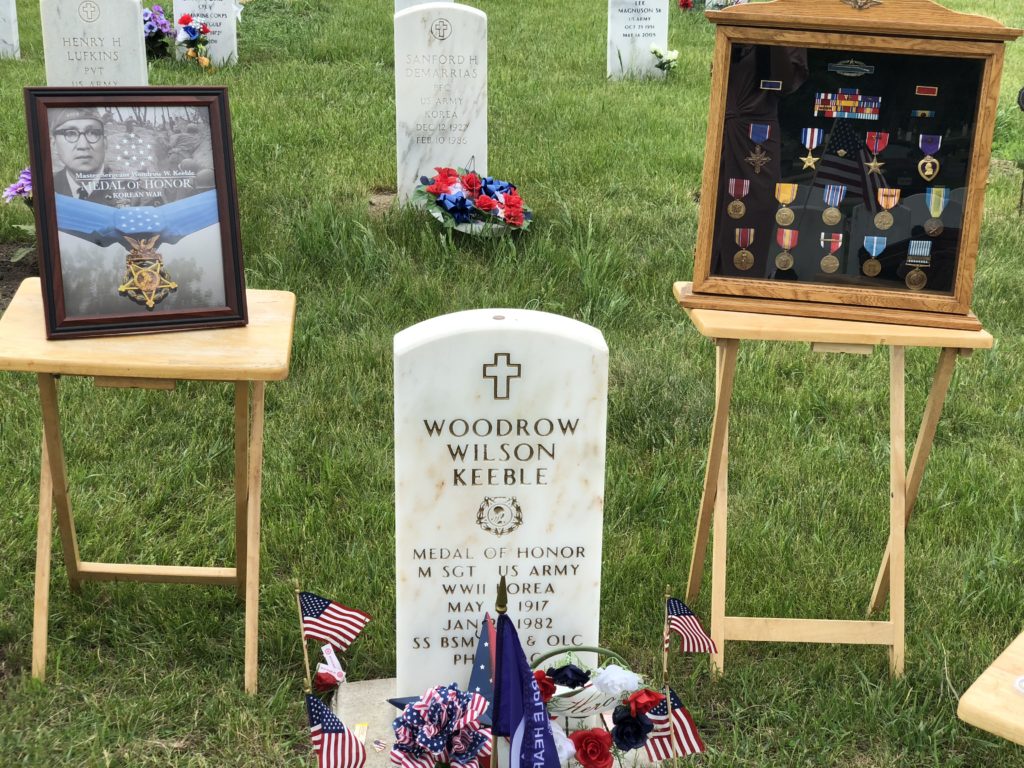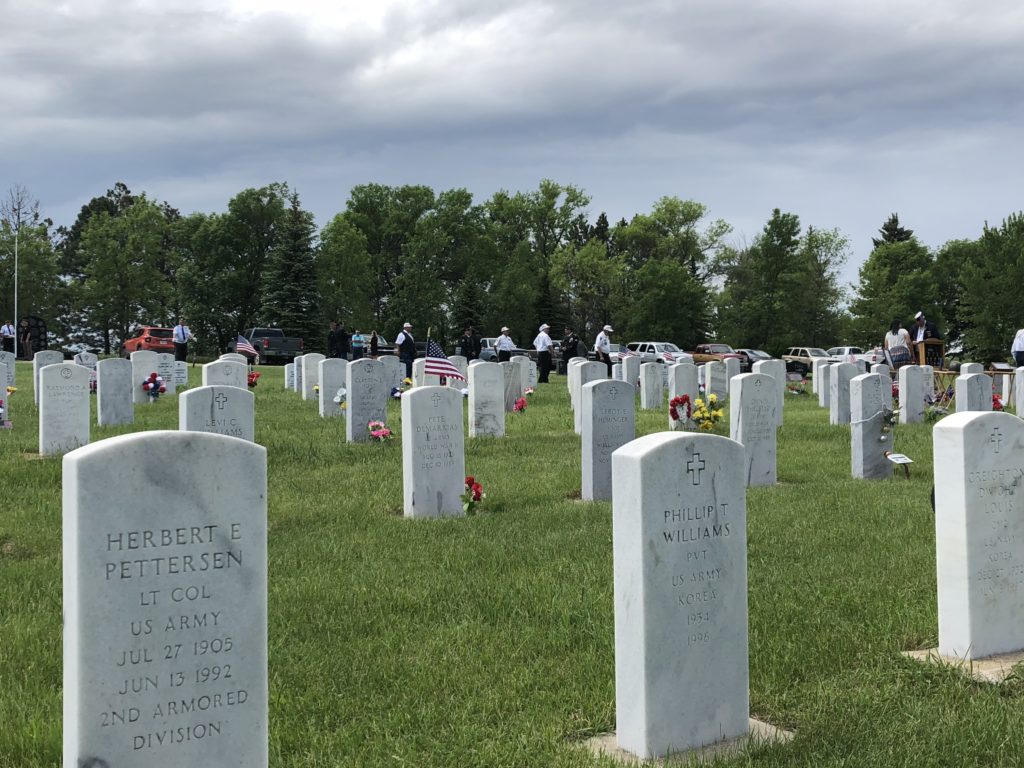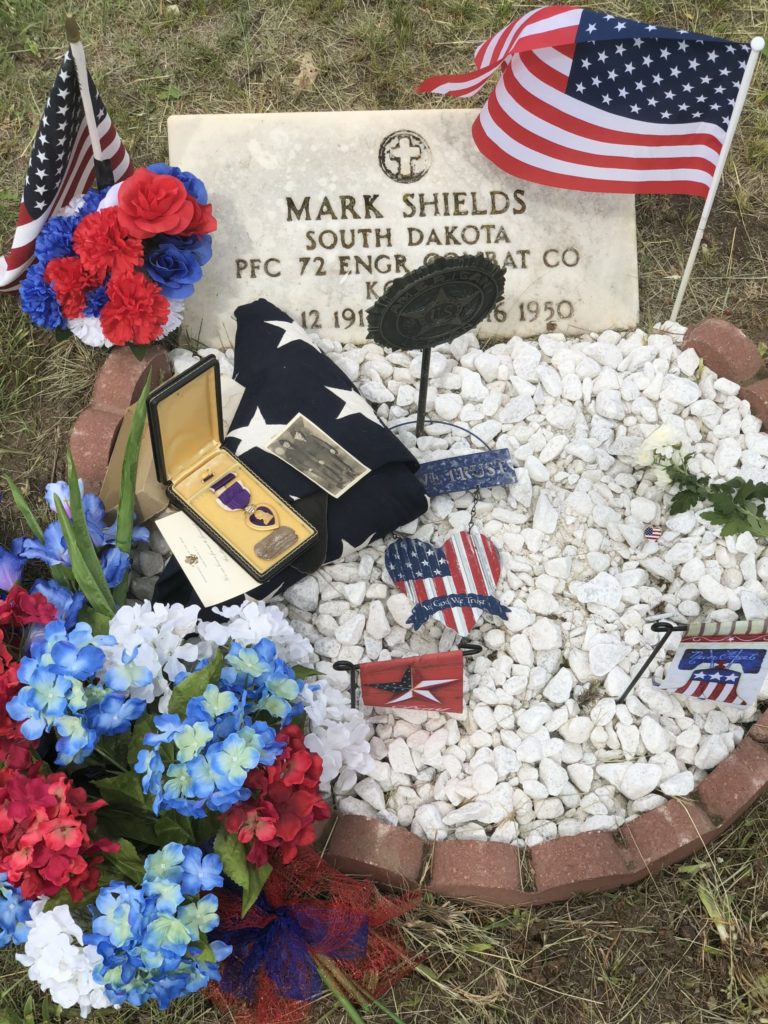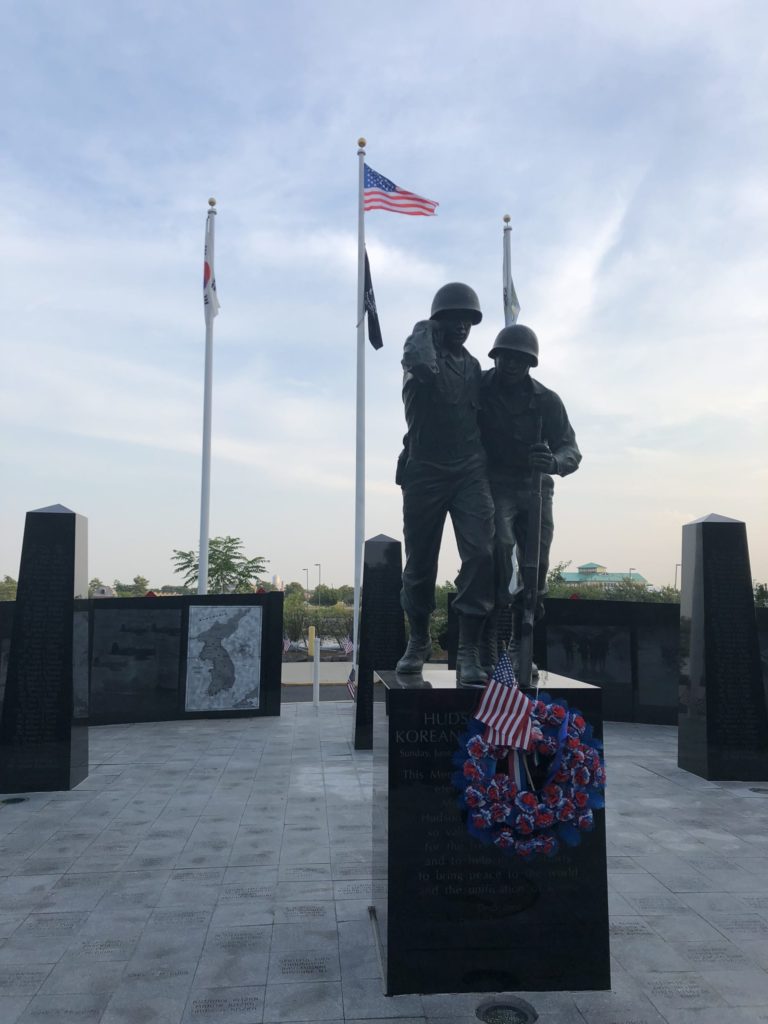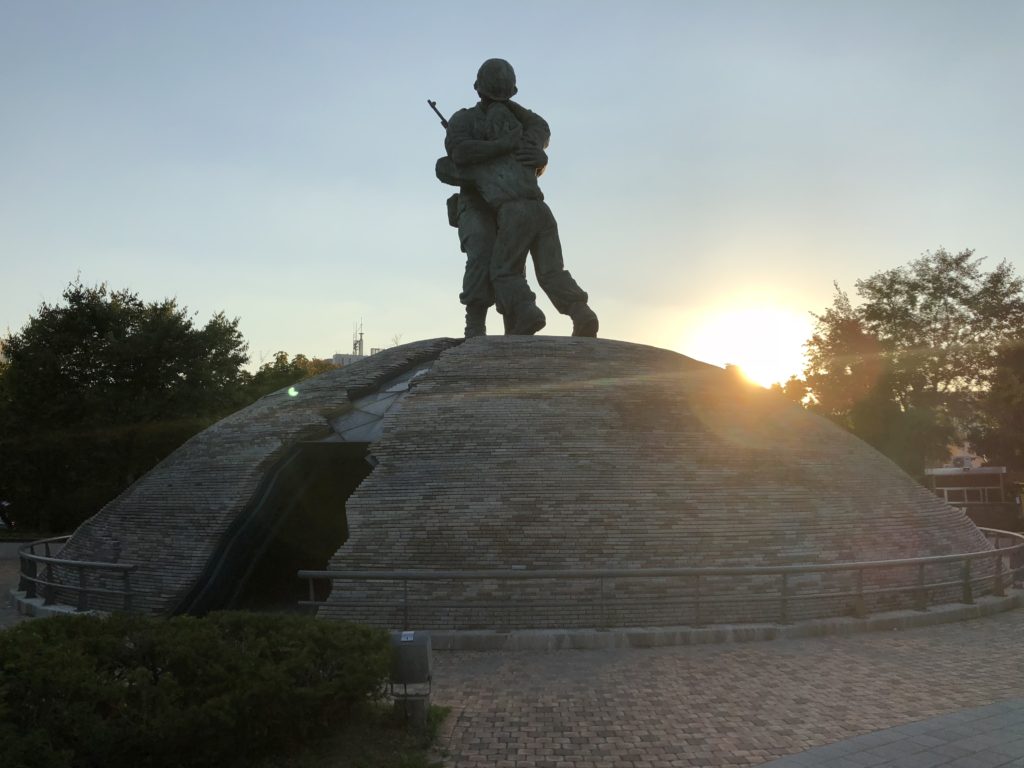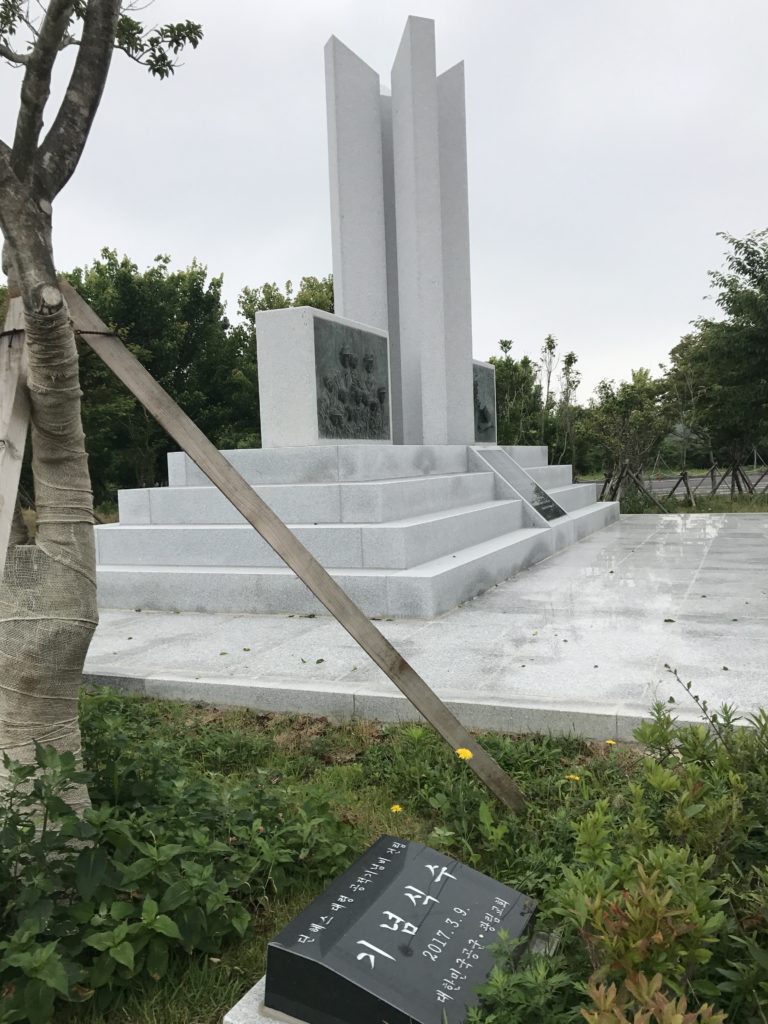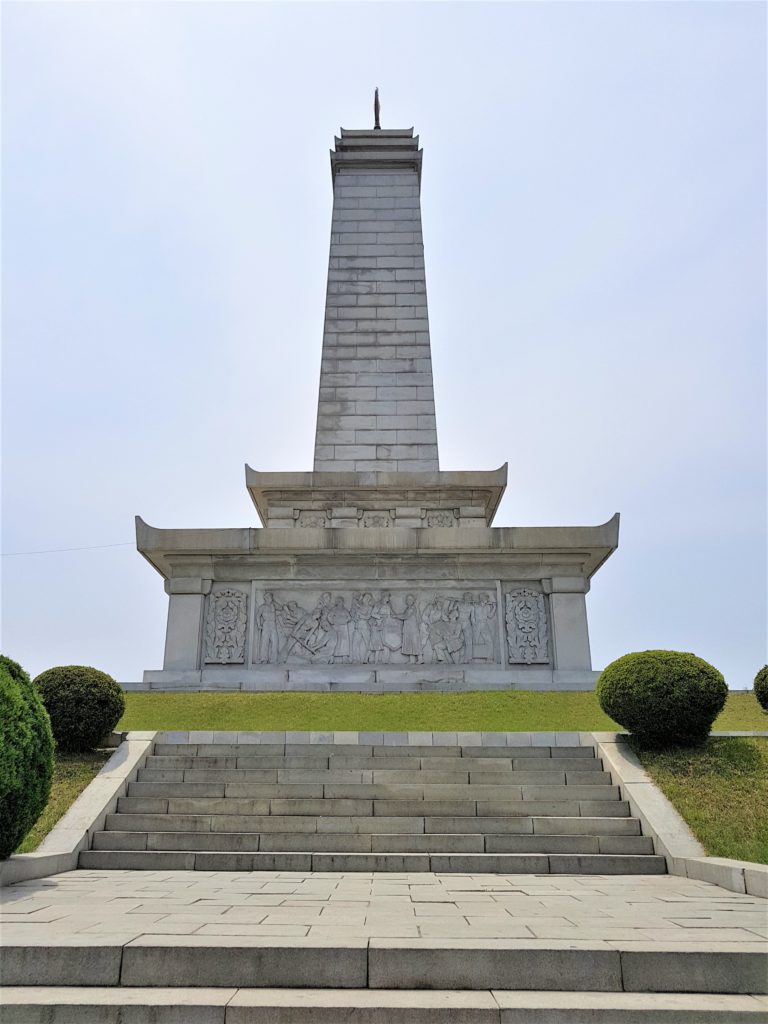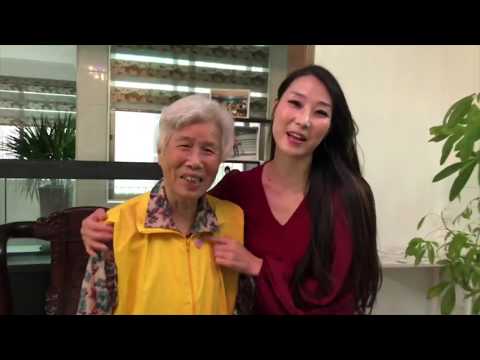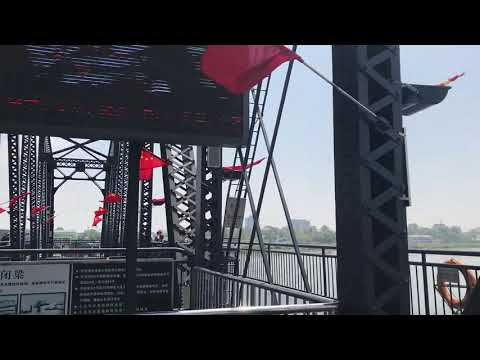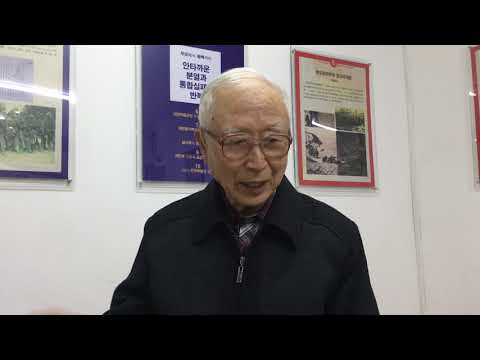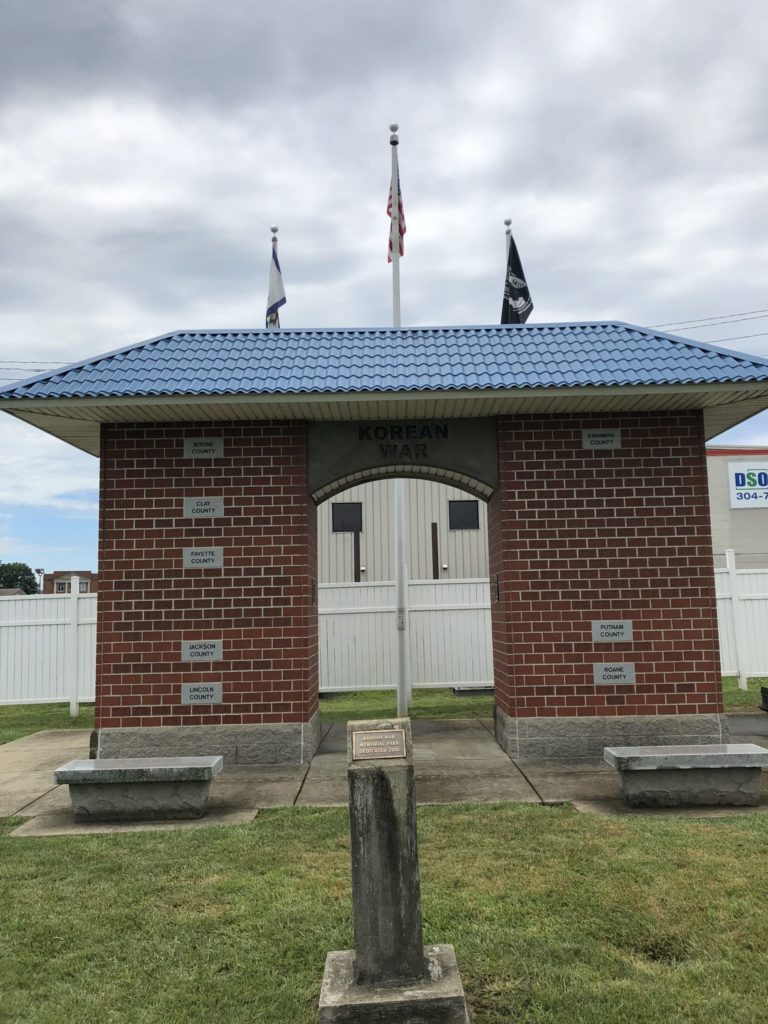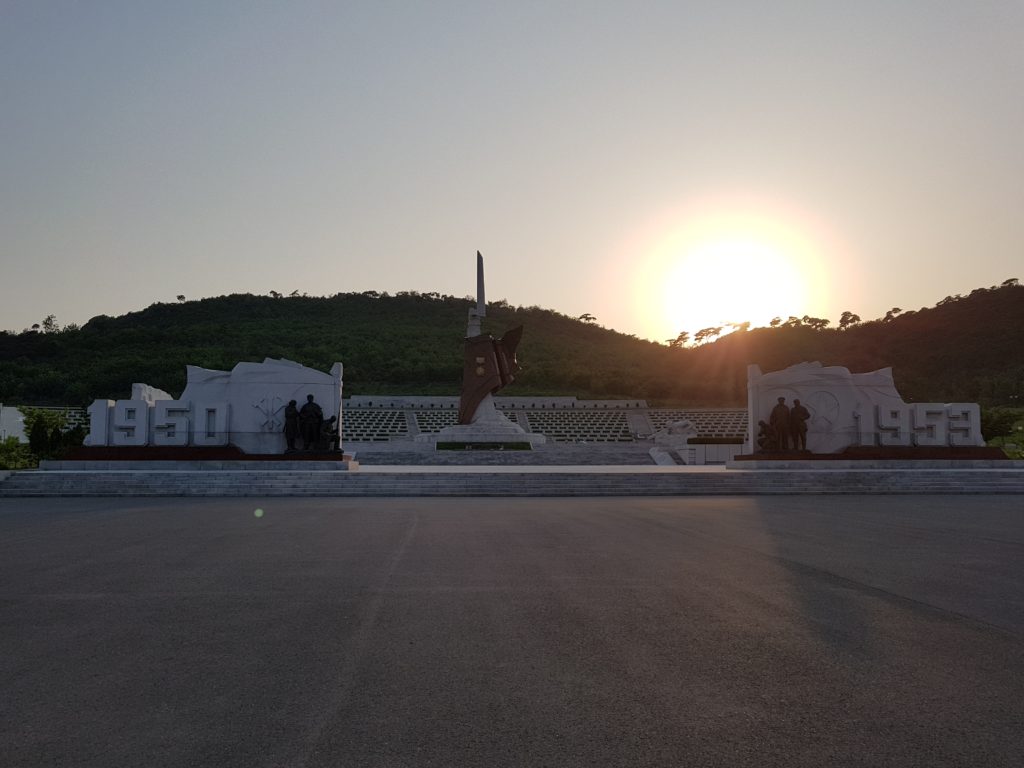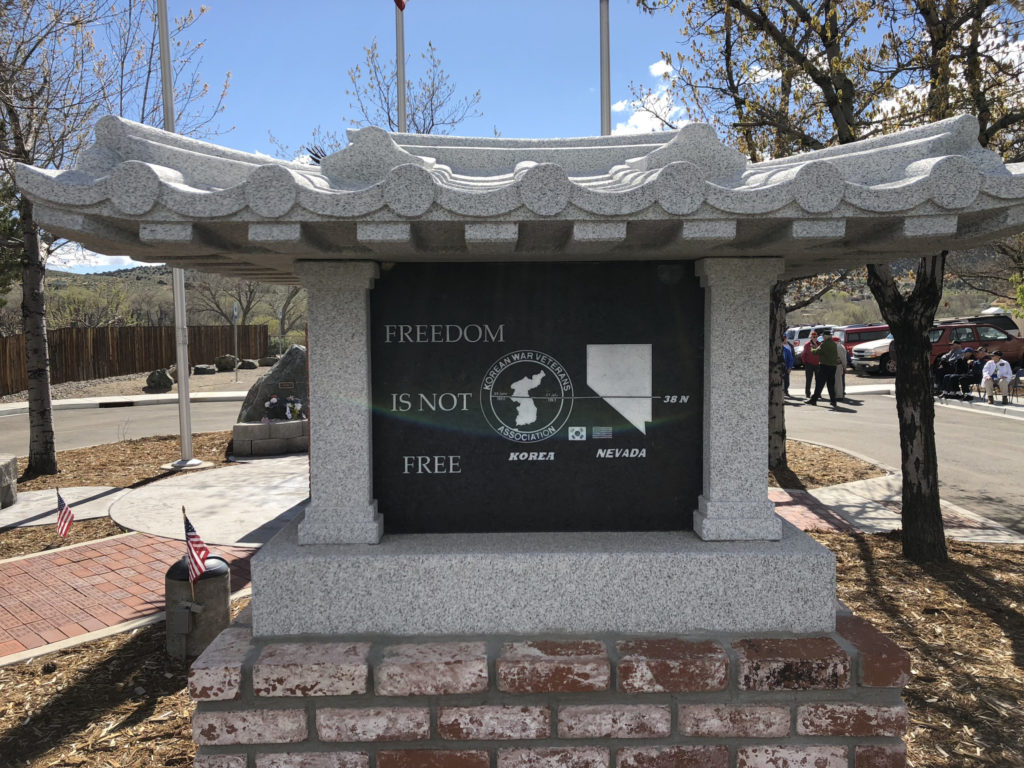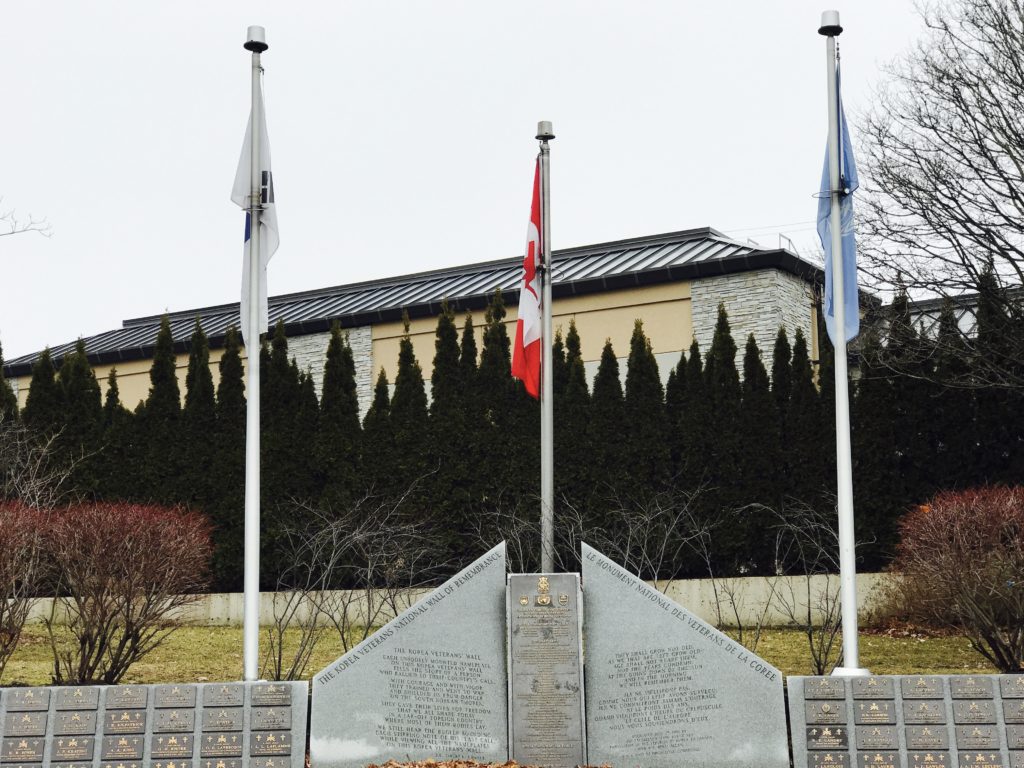다양한 국가와 도시를 클릭하여 세계 곳곳에 있는 한국 전쟁 기념비를 탐험해보세요.
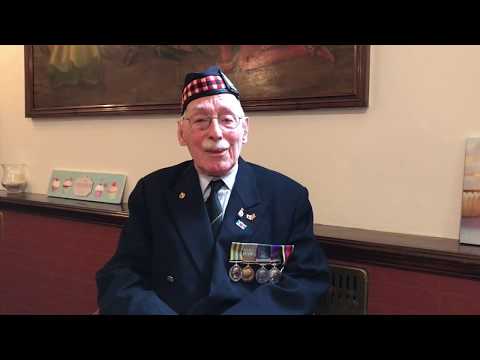
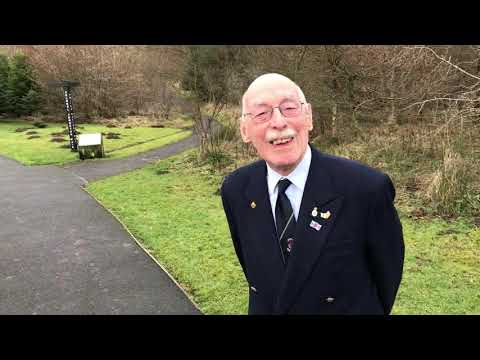
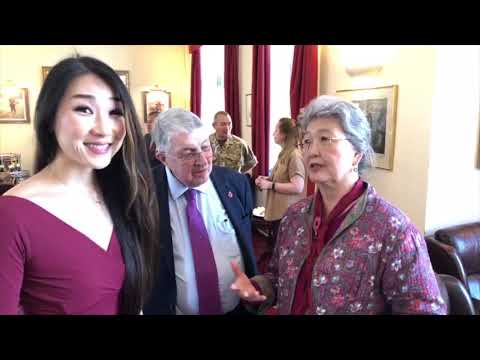
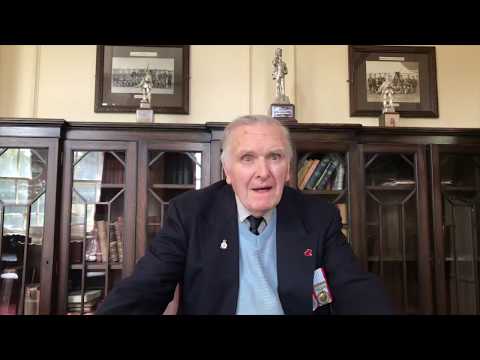
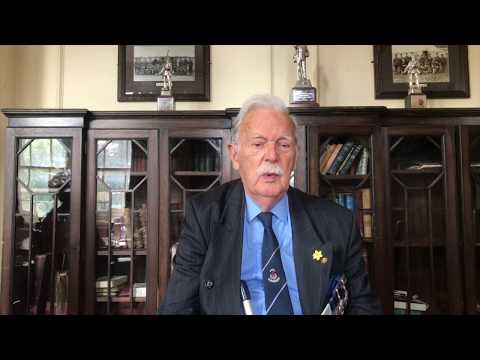
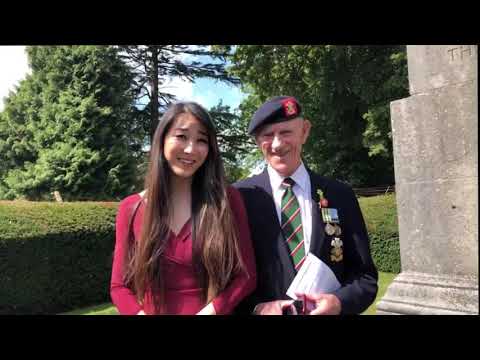
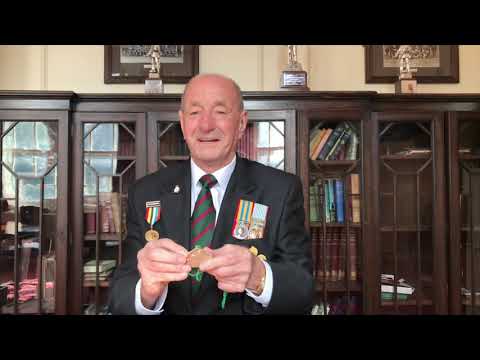
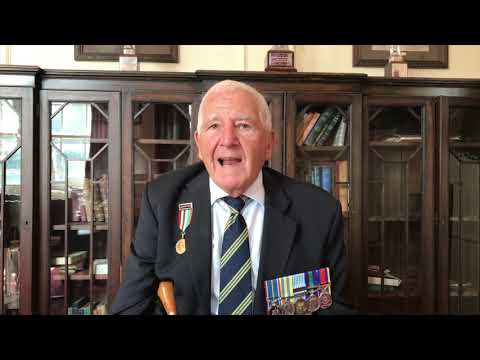
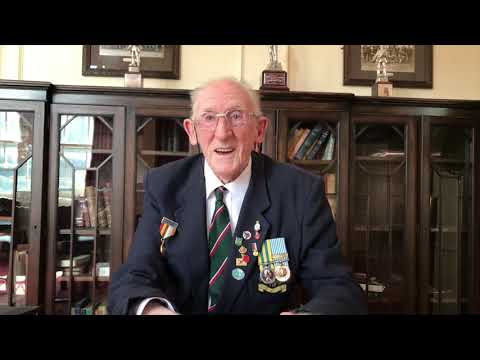
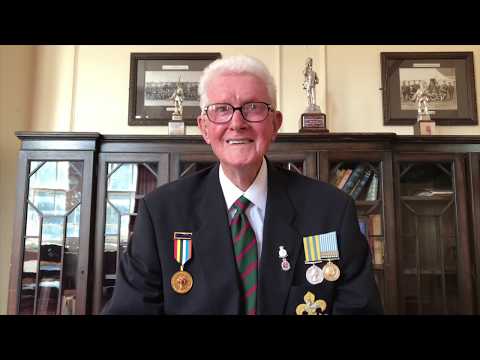
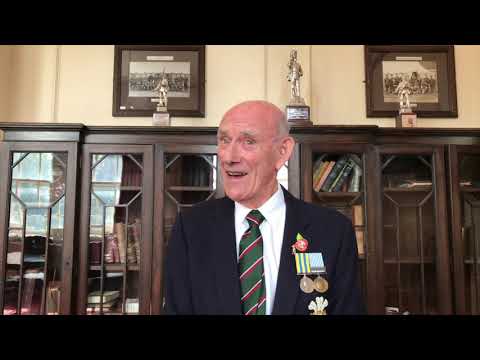
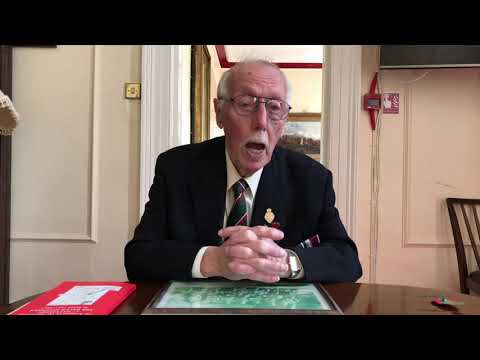
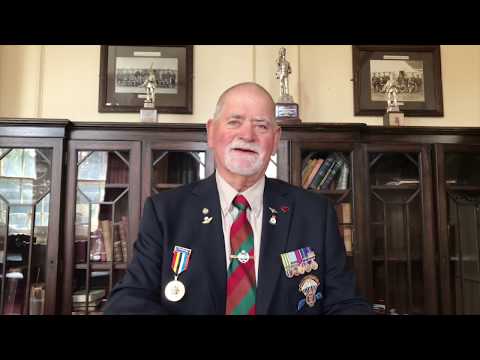
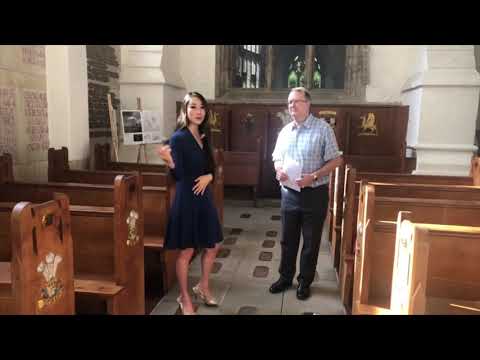
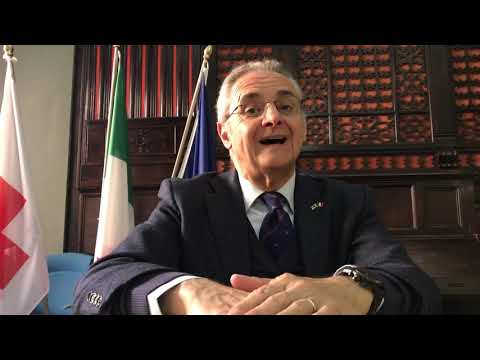
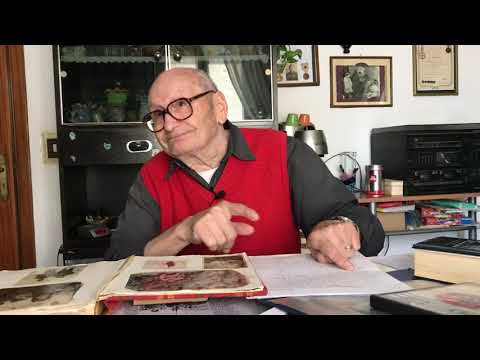
>> [FOREIGN LANGUAGE].
>> So he’s the colonel lieutenant of the …
>> Claudio …
>> … Claudio …
>> … de Felici …
>> … de Felici …
>> [FOREIGN LANGUAGE].
>> … of the military corp …
>> Italian Red Cross.
>> … of the Italian Red Cross.
>> And we are in [FOREIGN LANGUAGE].
>> Okay. We are in the [INAUDIBLE].
>> [FOREIGN LANGUAGE].
>> We are in the room of the Red Cross where the personnel departed for the war in 1964.
>> [FOREIGN LANGUAGE].
>> October 16th, 1951.
>> [FOREIGN LANGUAGE].
>> So the hospital was operated from December 1951 to 1954 …
>> [FOREIGN LANGUAGE].
>> … and the personnel …
>> [FOREIGN LANGUAGE].
>> … were repatriated in …
>> [FOREIGN LANGUAGE].
>> … until the 10th of January …
>> [FOREIGN LANGUAGE].
>> … of 1955.
>> [FOREIGN LANGUAGE].
>> Mm-hmm. The hospital was composed of paramedics …
>> [FOREIGN LANGUAGE].
>> … medical officials …
>> [FOREIGN LANGUAGE].
>> … and …
>> Paramedic.
>> Paramedics, yeah.
>> [FOREIGN LANGUAGE].
>> Voluntary nurses …
>> [FOREIGN LANGUAGE].
>> … and Korean personnel …
>> [FOREIGN LANGUAGE].
>> … for the services …
>> Of the hospital.
>> … yeah, of the hospital.
>> [FOREIGN LANGUAGE].
>> The Korean authorities …
>> [FOREIGN LANGUAGE] the American authority.
>> … and the American authorities …
>> [FOREIGN LANGUAGE].
>> … of the …
>> [FOREIGN LANGUAGE].
>> … oh, of the coalition …
>> [FOREIGN LANGUAGE].
>> … oh, appreciated …
>> [FOREIGN LANGUAGE].
>> … the work …
>> [FOREIGN LANGUAGE].
>> … the work done by the Italian personnel …
>> [FOREIGN LANGUAGE].
>> … of hospital number 68, yeah.
>> Why was it called the hospital number 68?
>> I don’t remember.
>> [FOREIGN LANGUAGE].
>> Sixty-eight …
>> [FOREIGN LANGUAGE]. Now I don’t remember in this moment, but there is [FOREIGN LANGUAGE]. I don’t remember now because …
>> I’m very curious.
>> … this number.
>> I’m curious. I want to know, yeah.
>> [FOREIGN LANGUAGE].
>> Okay.
>> My name is Claudio de Felici. I am a lieutenant colonel of Italian Red Cross, and now we are in [INAUDIBLE] of headquarter of Italian Red Cross. [FOREIGN LANGUAGE].
>> How many people went to Korea?
>> One hundred people went to Korea to serve the fine hospital number 68 during the Korean War, and the hospital stayed in Korea from November 5 [FOREIGN LANGUAGE] 1951 to 1954 December. Italy went. They sent the hospital in Korea. Italy was not a part of the United Nation, but Italy is member wholly de NATO. Mamma mia.
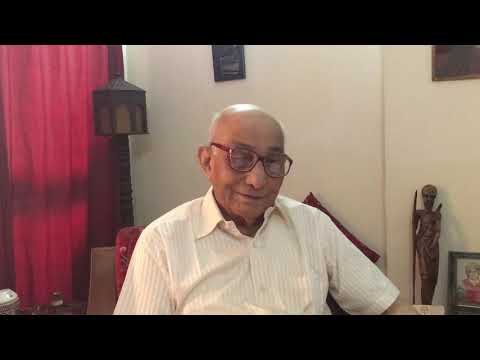
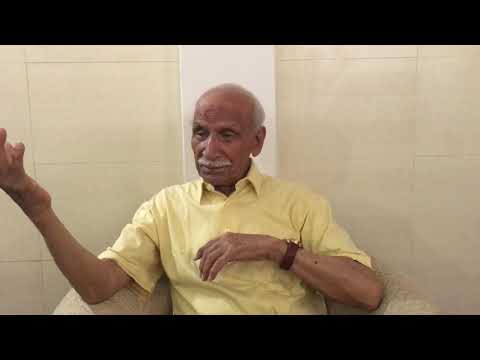
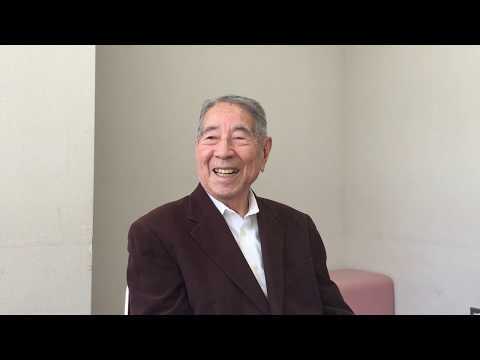
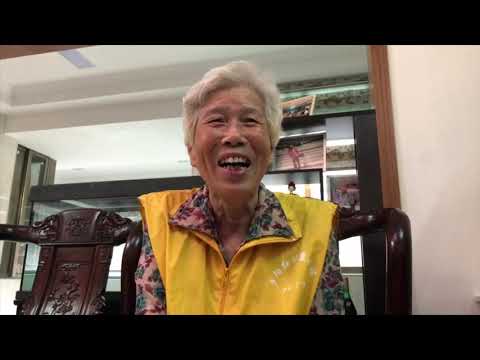
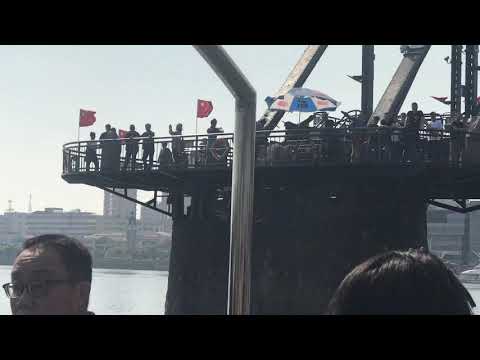
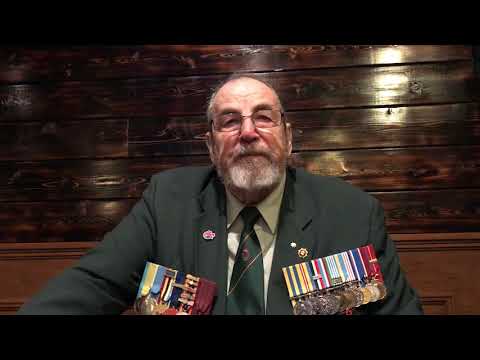
>> My name is Steve Davidson. I fought in the Korean War. I was 19 when I was in Korea. I started off as an army cadet, I guess, when I was 13 years old. I drove a tank when I was 14, and I joined the Reserve Army, which is like being in the army. You could be called in case of war, and then the Armed Forces in Canada, you had to be 18, so I joined, and I went to Korea when I was 19, and I guess I was looking for adventure. So I got to Korea, and when I arrived to Korea, it was on the 3rd of January in 1953, and when I had seen the devastation that had been caused in the country, we stayed at a staging camp in Busan for a couple of days, and then there was a troopship or a train that went forward, and it took a couple of days for us to get to Seoul or Tokchon, actually, which was the railhead where they dropped off. From then on, it was Tokchon to the no-fire zone. Along the way, there were little children. We’d stop. Some of them had their arms blown off, their legs blown off. They had no clothes. They had nothing to eat. We would take them on the train. We would give them chocolate bars and leftover sandwiches and anything we could and give them one of our jackets if we could to help, much too large for them, but to help them keep warm. So when you’re 19, you look at it and you say, “Boy.” You become a man very quickly. So my job in Korea was, I was a gun technician, a gun fitter, they called it, and I repaired weapons and artillery weapons, so it was my job to make sure that the guns were firing properly, and they fired where they should be firing and that we could kill enemy targets. I recall a battle, 197. It was a very intense battle, and that’s when Canada lost 23 soldiers in 1 day. They had only arrived from Canada. I think the Chinese realized that they were new, and they put an attack in, and it was very intense. The artillery fire was very heavy, and one of the loaders on one of the guns, he missed the breech on the gun and hit the side of the breech ring and set off the fuse, and when he’d done that, he blew himself and the gun up. My job was to repair that gun, so I had to pick flesh parts off the gun from him. The parts were very damaged. It took us 32 hours straight to repair the gun and get it back into action again because in the war, you don’t rest until the job is done.
>> That’s true.
>> Yeah, no matter how long it takes.
>> Well, that …
>> I always say, these people who would like a 30-hour work week have no sympathy for me who paid 32 hours that one day. I’ve revisited Korea twice since then. The first time was in 1984, which was 30 years after the end of the war, 31 years to be exact, and I was amazed at the progress that South Korea had made to rebuild the country from the ruins. It was devastating to see it. When I got there, it was lively, moving very quickly and buildings with high skyscrapers again. When I was there, there was one bridge across. Now, I believe there’s probably a dozen, and I was really impressed. I was national president for the Korean Veteran’s Association. In 2003 for the 50th anniversary, I went to Korea with the [INAUDIBLE] to celebrate the 50th anniversary, and I was, again, amazed. When I was there the first time, I had the okay to attend the opening of the Olympic Stadium where Seoul was holding the Olympics in 1988, and they had finished the stadium by 1984, and I was at the opening of the stadium. I thought it was just wonderful. The second time I was there, they built a war museum. In front of the war museum, there’s a big, beautiful monument, and I was amazed once again at the progress that they had made. I guess in summing that up, I was a kid looking for excitement, something different. I didn’t really know why I was there. I’ve seen the Korea of today. I know why I was there, and I’m very happy, and I guess I consider all Koreans my extended family, and my closing remark I guess would be, if you’ve been in war for 1 day, you have had enough war to last a lifetime.
>> Can you repeat that?
>> If you have been in war for 1 day, you have seen enough to last you a lifetime.
>> I know. Thank you. We are so grateful to you, the Canadian-Korean War veterans and the Korean War veterans all around the world, and as you know, there’s still an armistice and South and North Korea remain divided, so what do you hope for the future of …
>> Well, I would like to see in my lifetime them united. I had a chance in my second visit to attend the memorial service in the demilitarized zone, and the South Korean pavilion is absolutely beautiful. On the North, you have a very long building, but it’s only 8 feet wide, but I’m 6-foot-2, so I wouldn’t have much room to lay down at night, and the South has progressed while the North has de-gressed, and people are suffering from malnutrition and wasting their money on developing weapons of destruction. That’s not the way the world should be.
>> Well, I hope that in your lifetime and our lifetime, very soon, that there will be peace, and we’ll be united so that even North Koreans who are suffering will also gain freedom that we, Koreans all over the world, enjoy so much. So on behalf of my family and friends and Koreans all over the world, thank you.
>> It’s been so nice to be able to meet you, and I think what you’re doing, traveling to every country that participated in the Korean War, is certainly a big undertaking for a little lady of your stature. You’re a good representative of your nationality.
>> I may be little, but I am strong.
>> You’re mighty.
>> I am mighty.
>> Yes. That’s right. You sure are. You’re beautiful.
>> Thank you so much.
>> Okay.
>> Love you. All right. You’re so sweet.
>> Thank you so much for the warm reception. This was beautiful. Today was beautiful.
>> We tried our best.
>> Best was better than any best, better than any best.
>> But all we can do is try our best. That’s what that … So It’s been a real pleasure to have you today.
>> Grandpa Dog, Grandpa Dave, Uncle Bill, everybody, thank you.
>> A lot of people.
>> I know why I was there. I’ve seen the Korea of today. I know why I was there, and I’m very happy, and I guess I consider all Koreans my extended family, and my closing remark I guess would be: If you have been in war for 1 day, you have had enough war to last a lifetime.
>> Can you repeat that?
>> If you have been in war for 1 day, you have seen enough to last you a lifetime.
>> I know. Thank you. We are so grateful to you, the Canadian Korean War veterans and the Korean War veterans all around the world, and as you know, there is still an armistice and South and North Korea remain divided, so what do you hope for the future of …
>> Well, I would like to see in my lifetime them united. I had a chance in my second visit to attend the memorial service in the demilitarized zone, and the South Korean pavilion is absolutely beautiful. On the North, you have a very long building, but it’s only 8 feet wide, but I’m 6-foot-2, so I wouldn’t have much room to lay down at night, and the South has progressed while the North has de-gressed, and people are suffering from malnutrition and wasting their money on developing weapons of destruction. That’s not the way the world should be.
>> Well, I hope that in your lifetime and in our lifetime, very soon, that there will be peace, and we’ll be united so even North Koreans who are suffering will also gain freedom that we Koreans all over the world enjoy so much. So on behalf of my family and friends and Koreans all over the world, thank you.
>> It’s been so nice to be able to meet you, and I think what you’re doing, traveling to every country that participated in the Korean War, is certainly a big undertaking for a little lady of your stature. You’re a good representative of your nationality.
>> I may be little, but I am strong.
>> You’re mighty.
>> I am mighty. Yeah.
>> That’s right. You sure are. You’re beautiful.
>> Thank you so much. Okay.
>> Love you. All right. You’re so sweet.
>> Thank you so much for the warm reception. This was beautiful. Today was beautiful.
>> We tried our best. I …
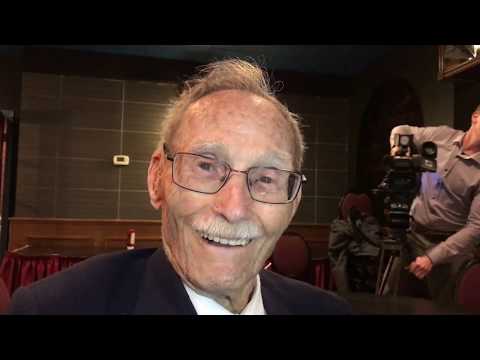
>> Grandpa Ken, when did you first go to Korea? When did you first go to Korea?
>> Why?
>> I have so much stuff.
>> Because I joined the Army to go there.
>> I have so much stuff [INAUDIBLE].
>> And when?
>> Right at the beginning of the war?
>> In 1950?
>> Yeah, in that time, in, around that time, yeah.
>> But you also fought in the World War II.
>> World War II, yeah.
>> So how old were you?
>> Sixteen and a half.
>> When you went to World War II?
>> When I to World War II, yeah. I was 16 years, 16 years old.
>> How old were you when you went to Korea? They recruited soldiers that young, when you were sixteen?
>> I guess I aged about 3 years or 4 years. I don’t know, but no. I went to Korea when I was … not Korea. I went … When I first joined the Army [INAUDIBLE] going right there. I lied like heck about my age.
>> You lied about your age?
>> Yeah. Well, see I told them I was 19.
>> Why did you want to join the Army when you were 16?
>> Sixteen, yeah.
>> You were a baby.
>> I told them I was 19, and I got in that way, and I was only 16, 16 1/2 when I got into action.
>> So when you went to Korea when you were I guess 19, 20?
>> I was about 16, yeah.
>> No, in Korea.
>> Wasn’t 16 when I went to Korea. Then I joined the Korean fun … The Korean war, I had already been in one war, and then that was my second war.
>> So how old were you?
>> Well, I started out, I was 16.
>> No, in Korea. How old were you when you were …
>> I would be about … Oh, I don’t know, 18, 19 if I was that old.
>> Okay.
>> I’m not sure of the age now. I forget everything. I do, and it’s a son of a gun. I can’t remember anything. Surely …
>> Well, you …
>> … [INAUDIBLE] stuff.
>> Well, what is your name?
>> So I spent time in World War II. Then when the Korean War broke out, I joined right up there with them.
>> What is your first … When you went to Korea, what was your first impression? What do you remember about the Korean War?
>> Korean War, well, going there and in a foreign land, foreign people to talk to and that, and it was just like anything else. You go, and you get used to it.
>> What do you remember from …
>> Well, I remember getting there and meeting other people and being ready for action, and I got wounded there, and when I back in the war again, I got wounded a second time, and nothing serious, but a wound was there. The first war I went to, I got everything, got all the paperwork done. I would sit there, and my mother said, “I’m going to have you withdrawn, tell them your age,” and I said, “Don’t bother. I’ll run away, and you won’t know where I am,” and that stopped her, so I went over there. I was in France, Belgium, Holland and all those places during World War II, and then when the Korean War broke out, I was there for that, and that’s it.
>> Have you been back to Korea?
>> I’ve never been back, no.
>> Yeah, you went back once.
>> Once, I guess, yeah.
>> Yeah, you were back once with me.
>> What year? When?
>> It was 2003, I think.
>> I forget what I was doing yesterday. I’m telling you. It’s tough.
>> We’re all getting older.
>> Yeah, damn right.
>> Getting older.
>> Oh, Jesus.
>> It’s okay. I forget too. Sometimes, I forget too.
>> I forget what I ate for dinner. You ask me what I had for lunch yesterday …
>> Exactly.
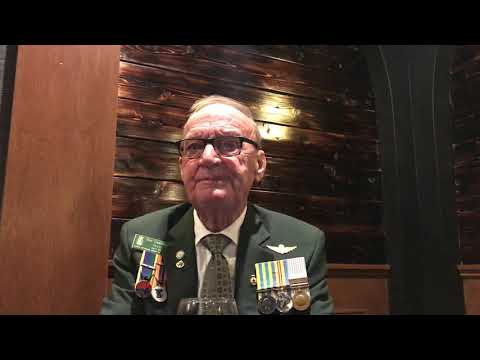
>> Hello. My name is Arthur Campbell. I went to Korea in February 1952. I left for Korea in February. I landed in Korea in March of 1952. It took us a month to get from our camp in Ottawa, Ontario. It took us a month to get over to Korea. They put us on a terrible ship. It must have been made in Japan or China back in the day because it broke down halfway across the ocean.
>> The ship broke down?
>> The ship broke down.
The big propeller stopped propelling, so thank God it had a little propeller on it, which kicked in, but consequently because we used the little propeller, it took us twice as long to get us across the ocean, which was not very nice. It was not very nice, but we made it. We landed in Japan. We stayed at the dry docks in Japan for about 3 days until they finished the ship. Then we went on to Korea. I liked Japan. It was very nice. It was occupied at the time, being so close to the Second World War. They didn’t know it was still occupied, and the occupation troops that were there were Australian, nice guys, big. They were all 6-foot-2, 6-foot-3, but they had the bad habit of thinking that the occupied Japan, that we weren’t allowed to touch anything. Excuse me. I won’t be vulgar, but we were all young guys, and we liked girls. So we would go to the dance hall.
You would buy a ticket, and the ticket would allow you to dance with a girl. We spent a lot of money on tickets. I did. Then, while you’re dancing, a big Australian would come along and say, “I’m cutting in,” and, “No, you’re not.” So we had a lot of arguments with the Australians, but we still had a girl. Then we moved on to Korea, and it was terrible. It was terrible. People were poor. The cities … It was awful. It was the most … I shouldn’t be doing this. I never went back. I had two or three chances to go back, but it just bothered me so much. I’m not over yet. When you were talking when you first come in, you were talking about … because of the troops that were there, United Nations, not just Canadians, United Nations, and because of them, you, your brothers, sisters, aunts, uncles are here now. That’s true. That’s very, very true because the amount of children, fatherless children, wonderful ladies that were just doing anything to keep their kids. It was terrible. So I’m proud. I’m happy about that, but I’m not going to get into anything as far as the terrible things that happened.
I can’t do it, and I won’t.
>> Then how about, so back here in Canada, you’re very active in the Association. What are some of the things that you’ve been doing as part of the Association to ensure that Canadians don’t forget?
>> What I have done, because I am the youngest, and thank God I’m still in fairly good physical condition, and I’m one of the few in the club. Now, Dave and I are both very good. Dave is an organizer. He can get things moving. Excuse me. I, on the other hand, am more of a hands-on type of guy. I can set up meetings. I can set up our picnics. I’m like a babysitter to most of the guys that can’t move, like I’m taking care of Ken. Ken and I are dear, dear friends. I pick him up, take him home. I take care of him. I’m sure you know that he has a little problem with dementia, and so yes.
What I do is humanitarian things, really. I love the guys. They love me. We get along together, and if I say to them, “Hey. We’re going to the Wall of Remembrance in July,” and this is January, “When?”, “19th of July,” “Okay.” They’re ready to go. I’ll make sure there’s transportation for them to and from and things like this. I’m not one to … I’m just one of the guys that can still help.
>> You’re the one behind the scenes that may move things.
>> I guess you could say that.
>> Yes, because there’s an organizer.
There’s a planner, but somebody has to do logistics.
You’re logistics.
>> Yep.
Yep.
>> Well, you said that it’s very painful for you to think about and remember it and even visit Korea because of the horrors that you’ve seen and witnessed in the war, but it is true that Korea still has not achieved peace. What do you think about that? What do you hope, maybe?
>> Well, I’ve heard that it does, so I’m terrified that that freaking idiot that they’ve got running North Korea, the little fat guy. All he talks about is bombs. I don’t like that. I don’t like him. We’re too old, but I’m telling you, if they need an instructor, there’s a lot of guys are capable. I’d go back in a blink of your eye. I would go back.
>> For to fight for Korea’s peace.
>> As an instructor. I couldn’t climb one mountain, not unless you got me a big billy goat that could carry me.
>> So you, as an instructor, you would leave your family even now to go back.
>> Right now, I have 13 grandchildren …
>> Wow.
>> … eight grandchildren, five great-grandchildren. My wife, God bless her, she passed away in 2008. She was a little girl, 4-foot-11, beautiful, beautiful, beautiful, Italian, black, black hair, brown, brown eyes, body … Oh. She was gorgeous, and then she had a stroke through diabetes. God, but thank God, she didn’t suffer. So to answer your question, I’ve got a family. I’ve got my kids, but they’re all grown up. They don’t need me anymore. They don’t need me anymore. They visit. They feed me. They phone, “How are you, Dad? Come on down Sunday,” which I do after church. I always drop in and see. But when the day comes that you’ve got no one that depends on you, really you’re taking up space. After my wife passed away, it was terrible. It was terrible, and yeah. I’d go back. I would go back. I’ve got too much involved in that country, too much of me. There’s too much of me still there. When I come home, yeah, I wasn’t the same Arthur that came home as the Arthur that went. Okay, sweetie?
>> I love you.
>> I love you, too, and you made everything … you and the thousands like you made it worthwhile.
>> Thank you.
>> Okay. Love that.
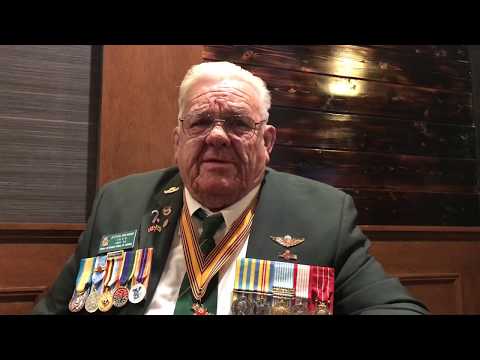
>> My name is Chester Brennan. I joined the [INAUDIBLE] went to Korea in 1951.
>> What do you most remember about it?
>> Lots of things about it, really. I remember riding the train from Busan up to near the 38th parallel. I remember it being hit by bullets, windows blowing out of it, and my first year was on Hill 355, and then, from what I understood, that my unit was at the point with the line going across Korea, and it was a very important position. If they got behind us, they got behind everybody, so we really worked hard to hold that position, and I was in a few real tough battles up there. We had an old post call back from [INAUDIBLE] that was it pretty hard during the day by the North Koreans, and I went over there at 3 o’clock in the afternoon and rescued three live guys, went back out and found three buried guys, and rescued them as well, all in the same afternoon, in broad daylight.
>> You have so many medals.
>> Yeah, it seems like every time I turn around, somebody is giving me another one, and I went from 31255, Hill 355, and I was moved from there over to a place called the Hook. I was on the Hook for 2 or 3 months, and I was in a couple major battles there, and then I moved to 187, and we had a terrible couple of battles there. We lost 40 of our boys in one night on 187.
>> And there’s a Korean War memorial, Wall of Remembrance, and I know there are names of those who were killed in Korea engraved.
>> I have them all listed on my briefcase, every one of them.
>> I saw that. I saw that, and you must recognize a lot of the names there.
>> I served behind the lines, where I knew all those guys. I was on 355. About 10 o’clock in the morning, we had a guy on the stretcher by the name of Bradshaw. We had a [INAUDIBLE] on the front, and the corporal, he was on the front, a lance corporal on the back and me on the back, and a shell hit the [INAUDIBLE] and killed three of them. I got blackened but didn’t get hurt, so somebody was looking after me, I guess. I don’t know.
>> Well, I’m sure God was looking out for you, and you see the names on the walls, and they all died, but you see South Korea, the prosperous nation that she is, and Koreans all over the world know, whether Korean Canadians, Korean Americans, like me, we’re so grateful. What do you feel when you see that?
>> See?
>> Korea, Koreans, what do you feel?
>> Well, I was there, and it brings back memories, brings back memories of what I did, what I went through. I’ve been decorated several times by the presidents of Korea. I did that big [INAUDIBLE] the big stone downtown [INAUDIBLE], and I went to … They called me to a big special meeting in Toronto with Korean people. They decorated me with that, and it really … It’s something else, really.
>> What do you hope for the future of the Korean people, or …
>> I hope they don’t go through it again. When I was there, there was nothing for them. Seoul is not the Seoul that I went through there, and there was kids with no clothes. People come along and beg you for something, to give them a pair of socks or something, and they were … They had nothing that they needed. They needed clothes, and it was a very sad situation. The only highlight I got at all, there was a little boy, we called him Willy, RCR Willy, and I was with him when he was just smaller than him, and he came to Canada with me, and he’s in Canada now. RCR Willy is what his name is. He’s in Canada, and he was just a little guy, and we rescued him. He was all by himself and nobody to take care of him, so we took him with us, and he’s in, I think, he’s in Ottawa here, a little Ottawan [INAUDIBLE] RCR Willy.
>> How did you guys meet again?
>> We just happened to run into each other, and I just got talking. When I heard his name, I said, “Kid, are you RCR Willy?” “Yeah.” He said, “I know you.” “Yeah, I know you, too.” We rescued him. We named RCR Willy because I was RCR, Royal Canadian Regiment, we named him RCR Willy. He’s in Canada somewhere now, in Ottawa somewhere.
>> And he kept his name?
>> What?
>> He kept his name Willy?
>> RCR Willy.
>> Wow.
>> Yeah, he’s in Ottawa somewhere.
>> That must have been very emotional.
>> What?
>> That must have been very emotional.
>> Oh, yeah, yeah, he was quite a little guy.
>> Well, I can guarantee you there are many, many Koreans all over the world enjoying the freedoms and success that we are thanks to your sacrifices.
>> Mm-hmm.
>> Thank you.
>> Yeah.
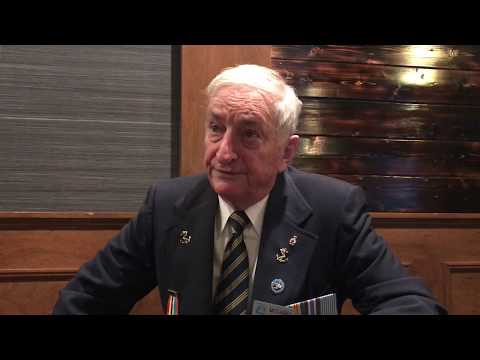
>> My name is Michael Bladen, and I went to Korea with the Royal Canadian Navy. I was there from 1954 until 1955, and basically, our job was to patrol up and down the coast to make sure that nothing was going, nobody was intruding on ROK land or sea area, and one of our major things that we did was to take clothing and provisions to the islands that were isolated by the Korean War. So that was a large part of what we did, and we used to darken ship and patrol every night, and essentially during the day, we were there 2 weeks at a time, and then 2 weeks we would go into rehab in Hong Kong or Japan, any one of those places, and then back in for 2 more weeks, so it was each time. And then that essentially was what our job was.
>> So you’re telling me that you were in Korea after the armistice?
>> After the armistice, that’s correct.
>> Not a lot of …
>> They were still fighting in early part of the ’54 though.
>> Not a lot of people know that.
>> Not a great deal, but it was sort of back-and-forth skirmishes but …
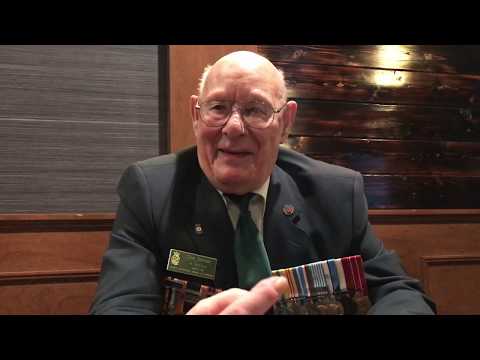
>> December 1952 is when I found out I was going to Korea, so New Year’s Day, I pulled out of Canada to go to Korea [INAUDIBLE]. So we’ll skip all that stuff. We’ve been over that. Anyways, when I was there, my job was sample. [INAUDIBLE] for their CHA. My job was to fix the line from the TAC headquarters to the OP, observation post, 6-5 and 7-5 OP. We used to have to go through this road that they had. It was a camouflaged road. Most people call it that. I call it Whizbang Alley because every time a shell landed there, all you hear is the whizzing of shrapnel flying all over the place, and the Chinese had a different tactic. Most artilleries, like have been in two wars, most artilleries have a nice pattern when they drop their shells and when their guns fire over. The Chinese didn’t. They’re always [INAUDIBLE] all over the place, so after a while, you get used to their idea. You know there’s going to be four rounds coming in somewhere. You don’t know where but somewhere, and this one time, they fooled us. They only had three, so we waited for the longest time to see when the fourth one is going to come in, so being in the artillery, you know that they always had four [INAUDIBLE]. So that’s fine and dandy. So we found out the next day they only had three, and the day after we found we had four [INAUDIBLE]. Two days before the attack of 187, we were going through this camouflaged road, what I called Whizbang Alley, and four rounds come in at exactly a perfect pattern. Don’t get me wrong. The Chinese are deadly on their computer. They have mortars that are really good, but anyway, they’re deadly, and we couldn’t figure this out because other than that, they’re all over the place. In fact, they give the false information or false feeling that they couldn’t hit the boards out of a barn door if they’re standing on it. That’s the way we felt like, but we know better after, so the day of the attack, we moved into one place. Oh, pardon me. The lines were out on the [INAUDIBLE] thing there, and our job is to fix these telephone lines and [INAUDIBLE]. I was fixing [INAUDIBLE] on the line. That’s when we found out some of the flairs were going up at night, and you took a pink sky, everything, pink sky, so we watched that, and one of the guys from the infantry told us, “We want you in this trench over here,” so we went over to that trench there. So we went in that trench area artillery [INAUDIBLE]. When I joined the artillery, I was supposed to be behind the lines, not in front of the lines. I ended up on the front lines. I don’t know how, but anyway, just like anything else I do in my life, it’s always backwards, but anyway, we were on the front lines. Now all I can tell you is what I seen and what I did, and most of the time I forgot, and I can’t remember what it is myself, and I really couldn’t care less. That’s the way I feel about it. There was an attack. The first shock is when I first seen my first enemy. It’s kind of a shock. Even though I was trained for it, it’s still there, but I caught myself into that time, fine and dandy. That was the first shock. After firing, I took that kind of … It looked like a wall of Chinese coming at you after the first shock of this trench and put that wall out [INAUDIBLE] they would wall back up again because they come in hordes. The next shock I had, I kind of had good therapy [INAUDIBLE] and they asked me different things what you might see over there, and one thing I brought out, I says, “With all the noise going on, the machine guns going and firing bombs and all other kind of stuff going on, the loudest noise you ever have is the click of a rifle when it’s empty.” So now, they’ve got a brand-new soldier. Anyway, that was the first time I got the first sign of fear go right through my body, but once again, you’re trained. I went down. There’s enough ammunition on this [INAUDIBLE]. I reloaded, fired. Okay, second time that happened, I knew what to do. I was okay, but that was the first two shocks I had, scared me was the first enemy I’ve ever seen, the first time I run out of ammo and stuff like that. What happened after that, I couldn’t tell you. All I know after a while, we run out of ammo, and I was on top of the trench until somebody had me by the leg and said, “Get back in the trench again,” so I got back in the trench again. Lucky thing I did because our machine gun behind us opened fire and cleaned house for us. So I got back in the trench, fine and dandy. So 2 days later, we had another line crew come up and relieve us to go for a shower. So anyway, shouldn’t do that. Anyway, we went for a shower, and that’s the time when I come across … I didn’t I had it. I didn’t feel it. I had bruises on my arm and bruises on my leg. I don’t know where it come from, how it got there, didn’t have a clue. So after the shower, we come back, and we’re told we were not going back on the front line. We were going back to the regiment [INAUDIBLE]. So I got back there, and I went on [INAUDIBLE] and told them about my bruises. They asked if I was drunk or what I was drinking to get these bruises, and I says, “I never had a drop of liquor in my mouth for 2 weeks or 3 weeks.” Nobody gets that many bruises and he’s sober, so I tried to explain that we were in the middle of a battle, so what happened there, I couldn’t tell you, so that’s about all, nothing much. You’ve probably heard that story 1,000 times, so there’s nothing much to it. That’s all I can tell you.
>> What do you wish for the Korean people and the current future of Korea?
>> I’m going to tell you something that I tell everybody, and a lot of other Korean veterans agree the same. They always classify us as heroes.
>> I’m so sorry. I’m so sorry. Can we be quiet a little bit? Sorry.
>> They always classify us for being heroes, going halfway across the world and doing war. Our heroes, what I see that are heroes is the ROK Army. They fought all 3 years in that battle. They come home and rebuild the country from dirt up, and there you go. That’s my hero.
>> Well, you’re my hero.
>> Sorry. I’m sorry. I shouldn’t do this.
>> Thank you so much.
>> I’m sorry.
>> I’m sorry.
>> I’m sorry. I don’t know why, but I should never do this.
>> I would think that they are tears of joy and pride because what you have sacrificed for … Look at us.
>> Yeah, well …
>> Now look at us. Look at me. Look at my friend. Look at Koreans all over the world. We’re enjoying freedom today. You should be proud.
>> Well, after 65 years, you think it should be nothing near, but every so often it hits me. I don’t know why and no reason for it to me, but that’s it. So sorry.
>> Grandpa, done?
>> Yep.
>> I love you. Thank you.
>> Yep, yep.
